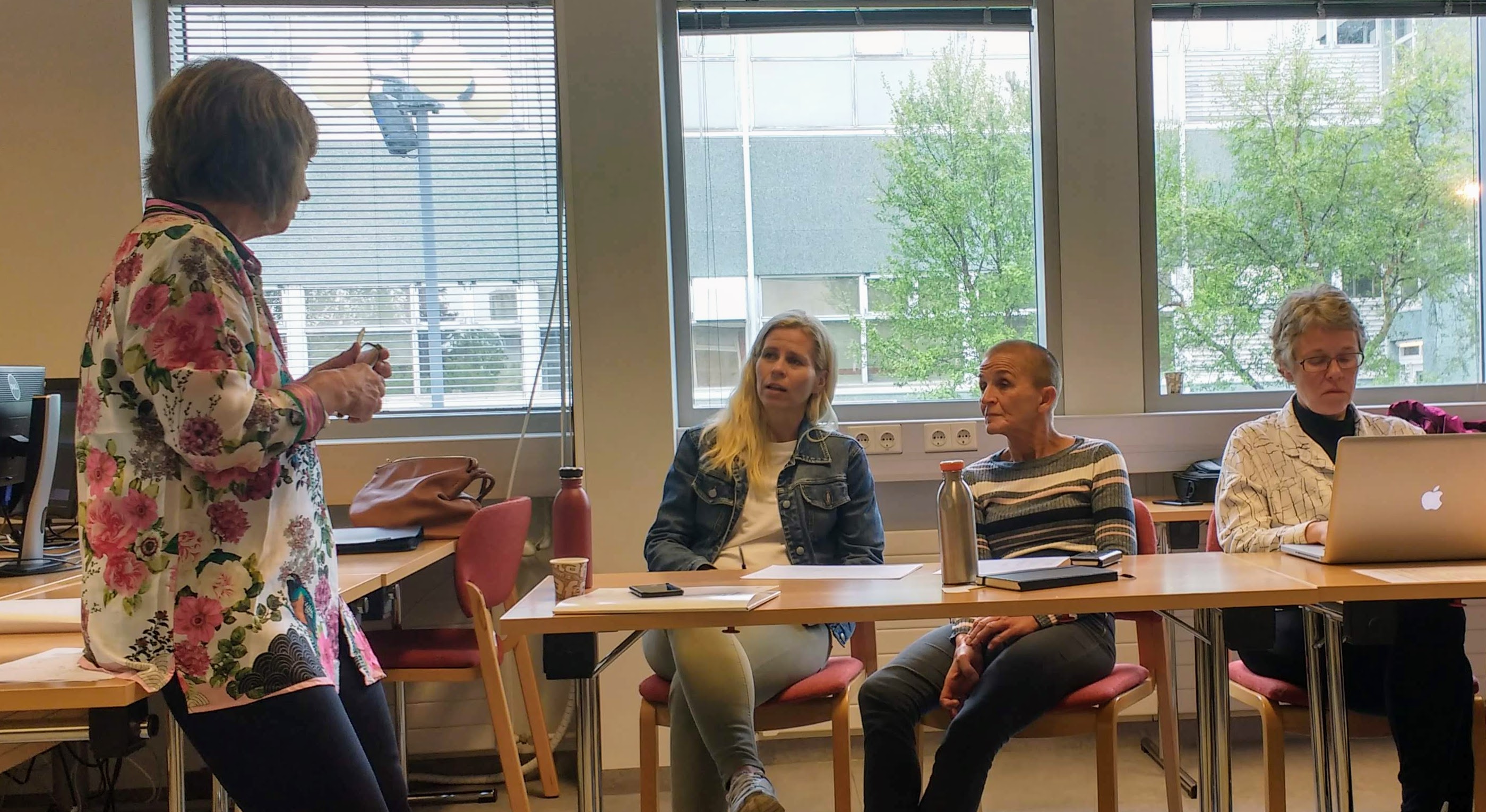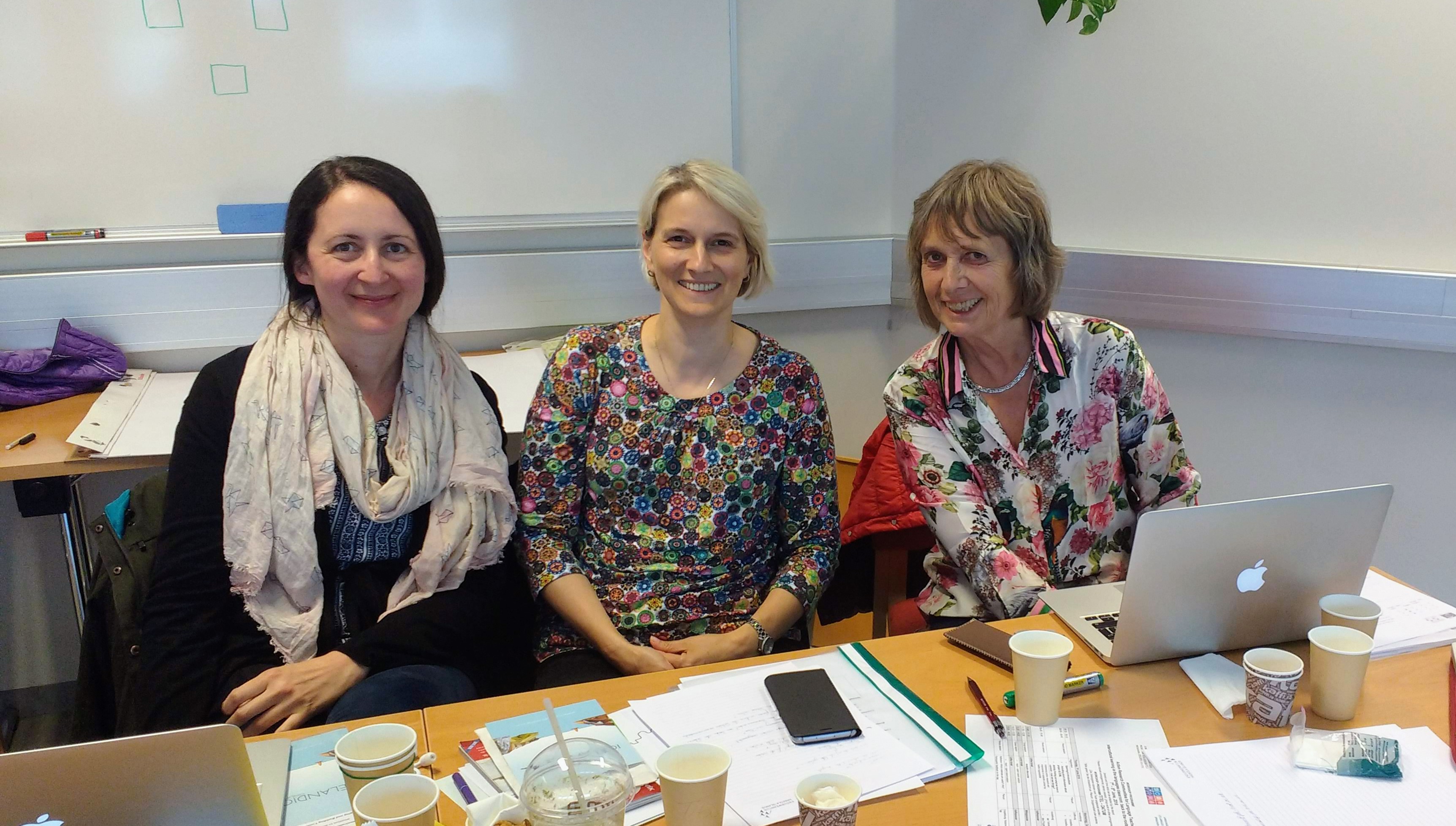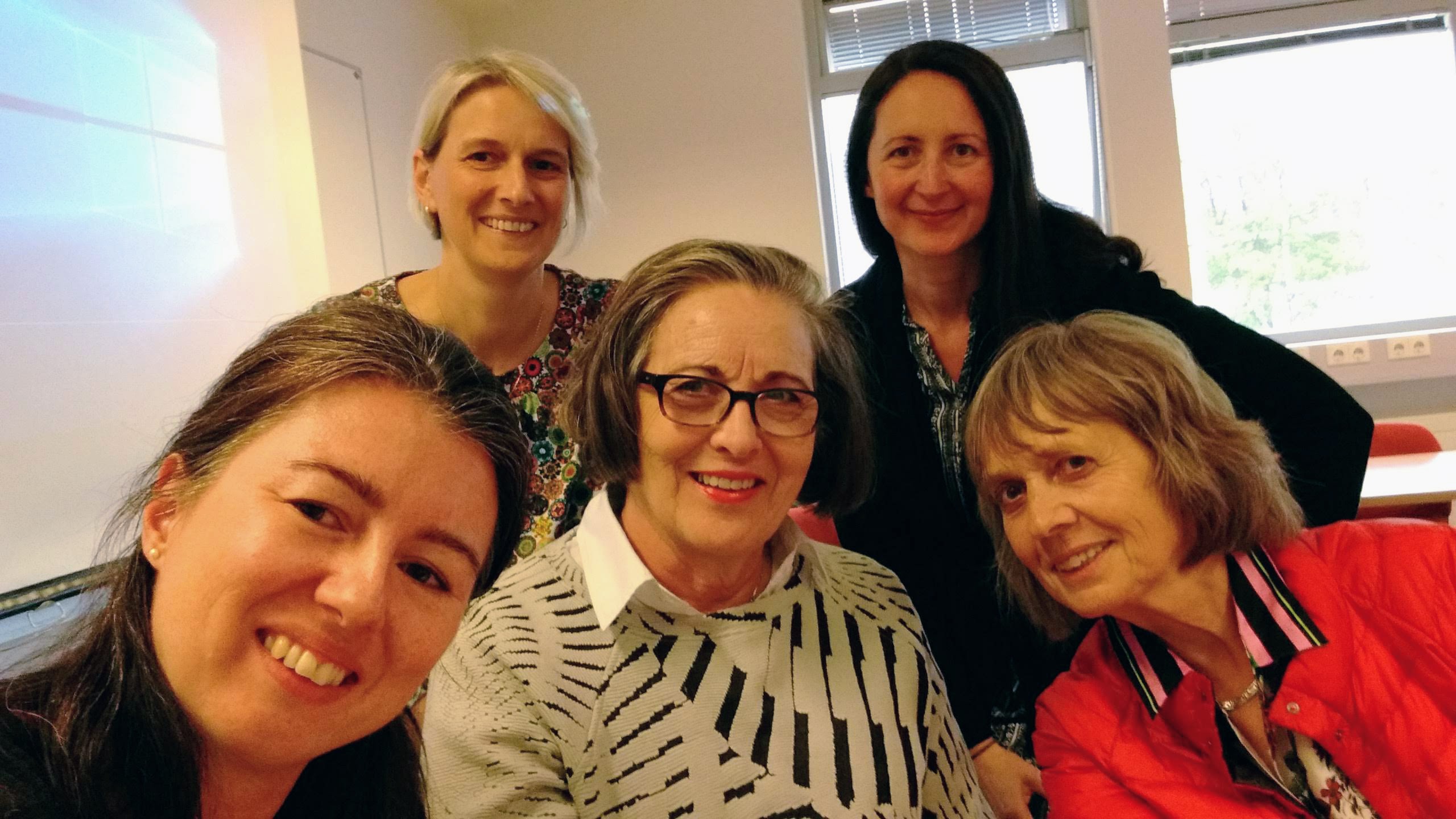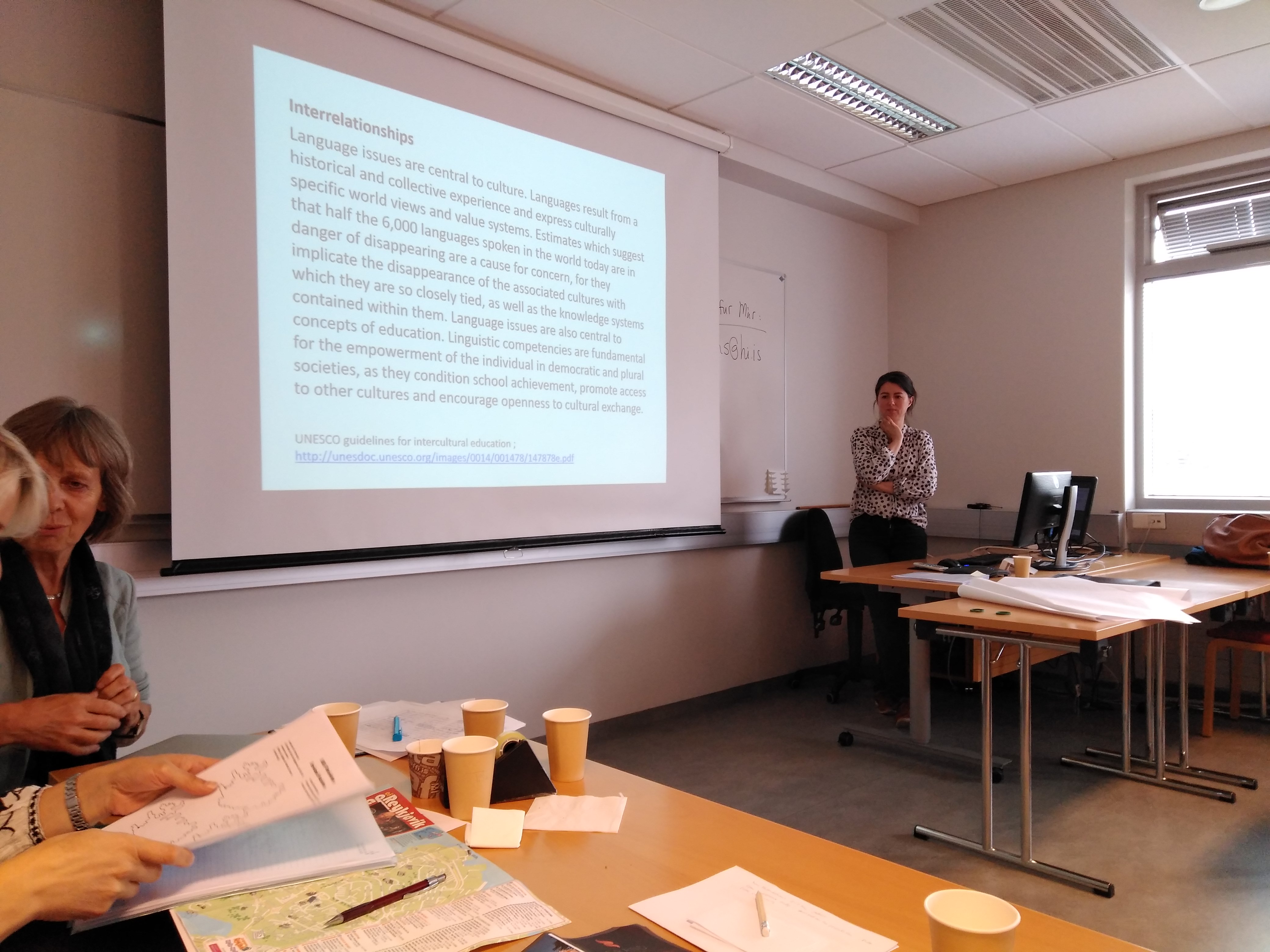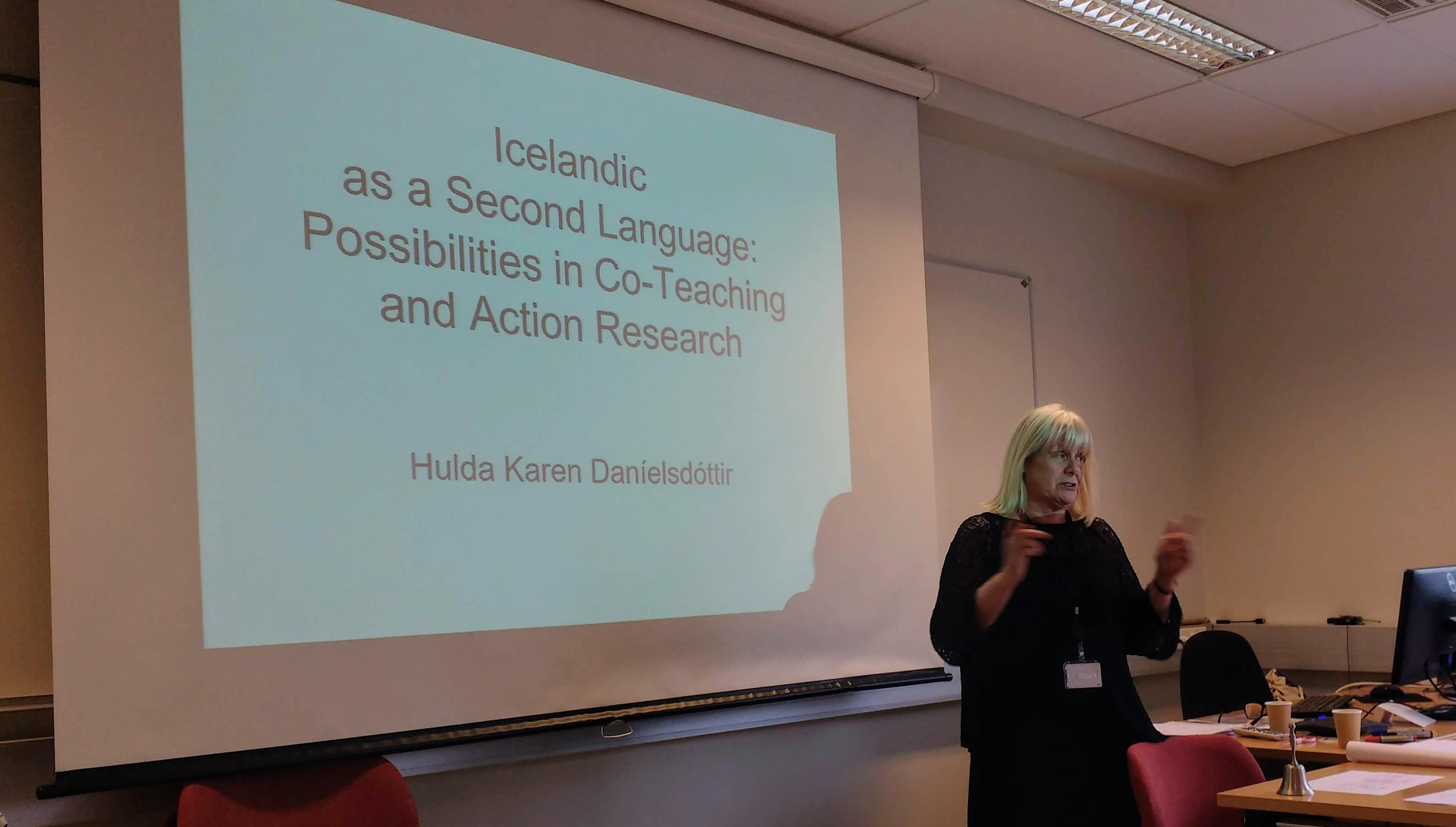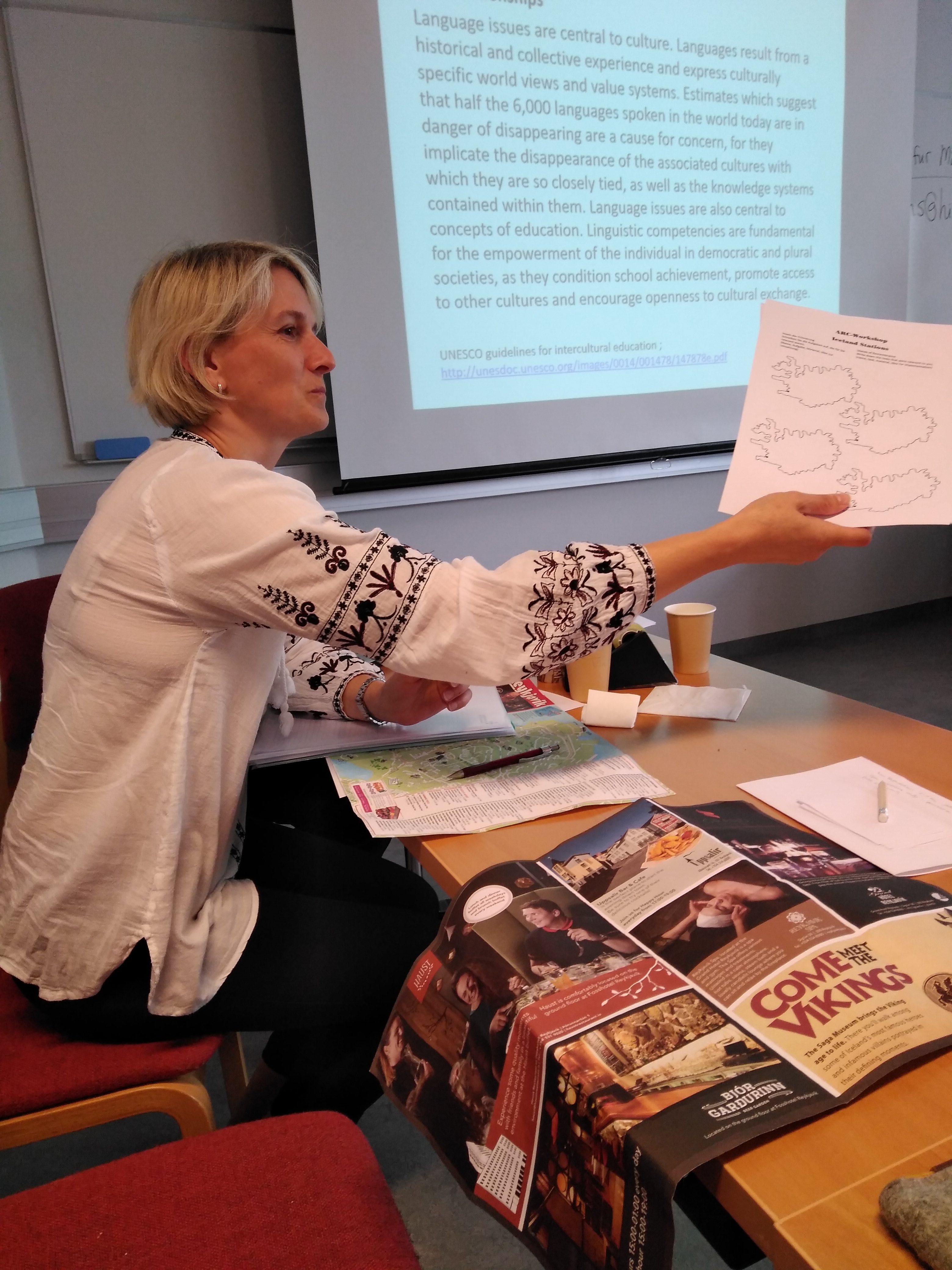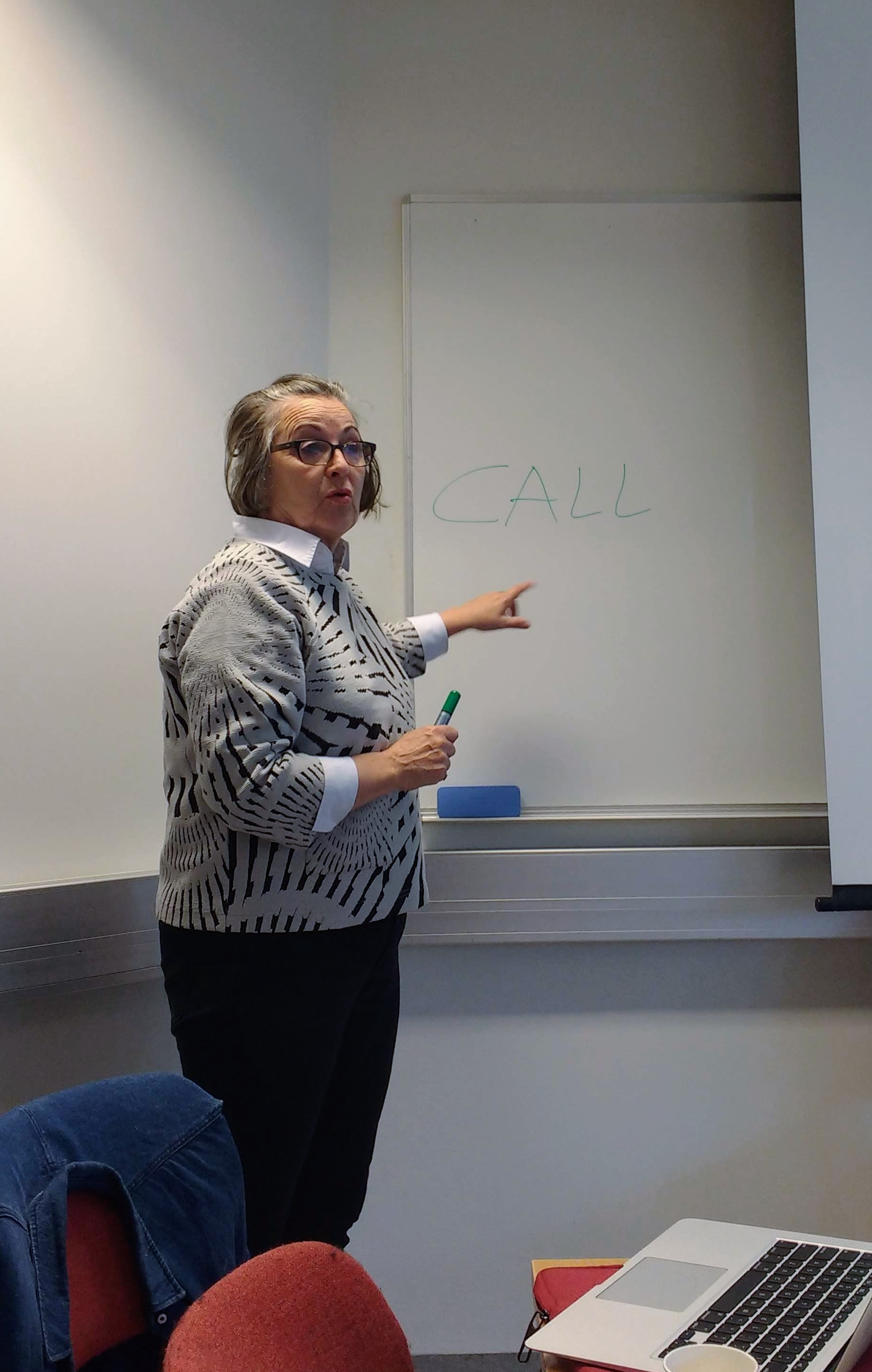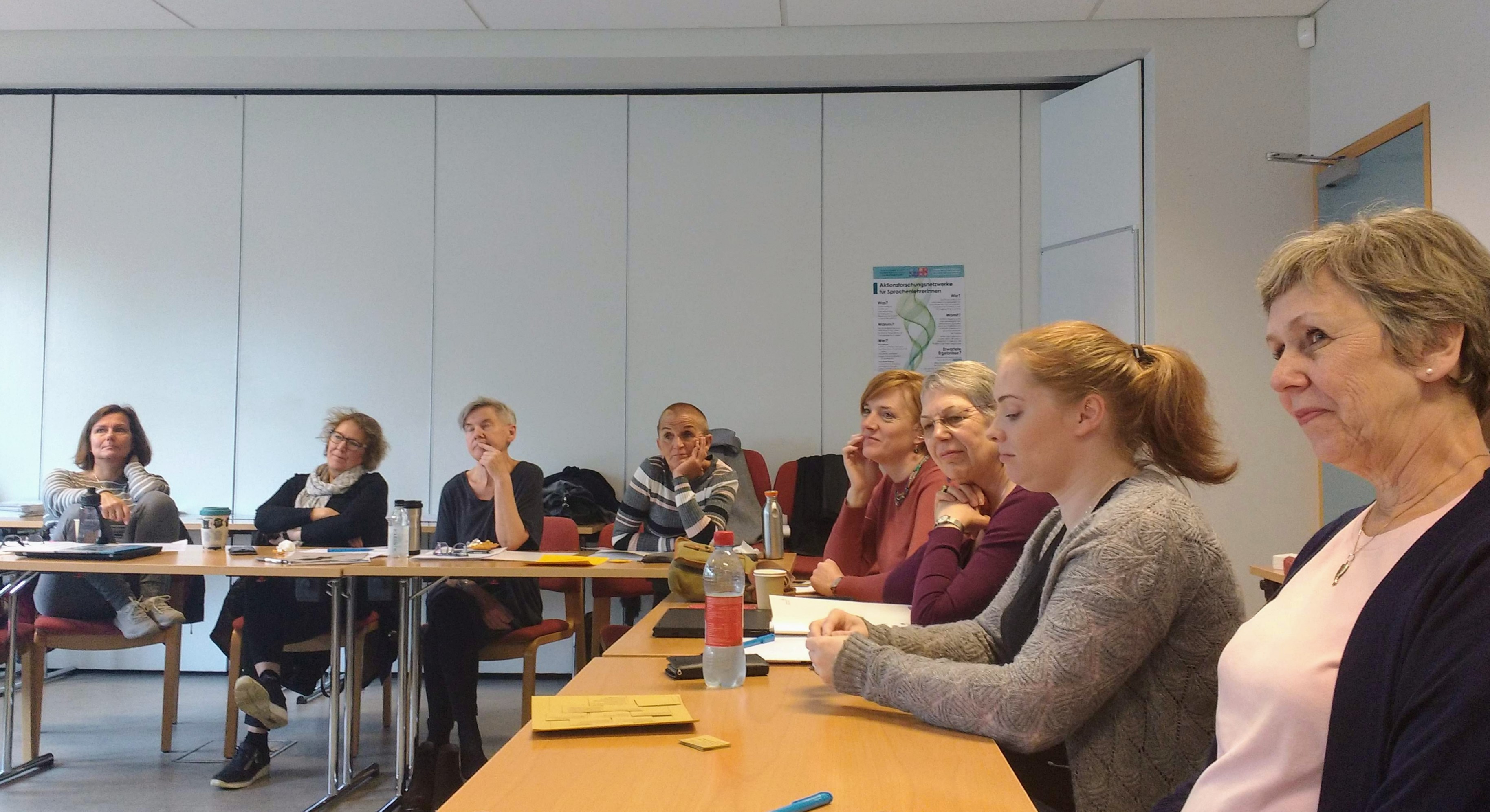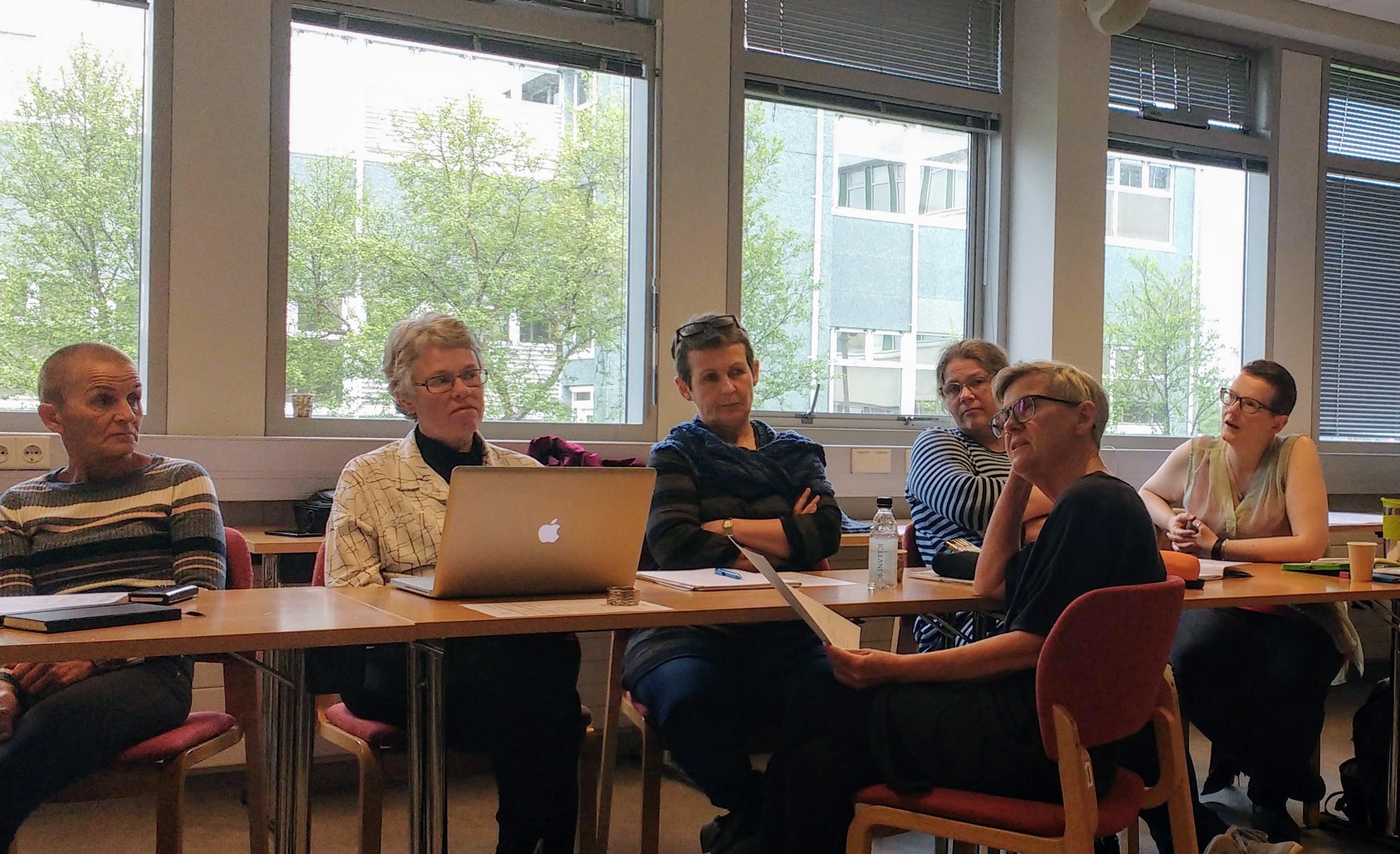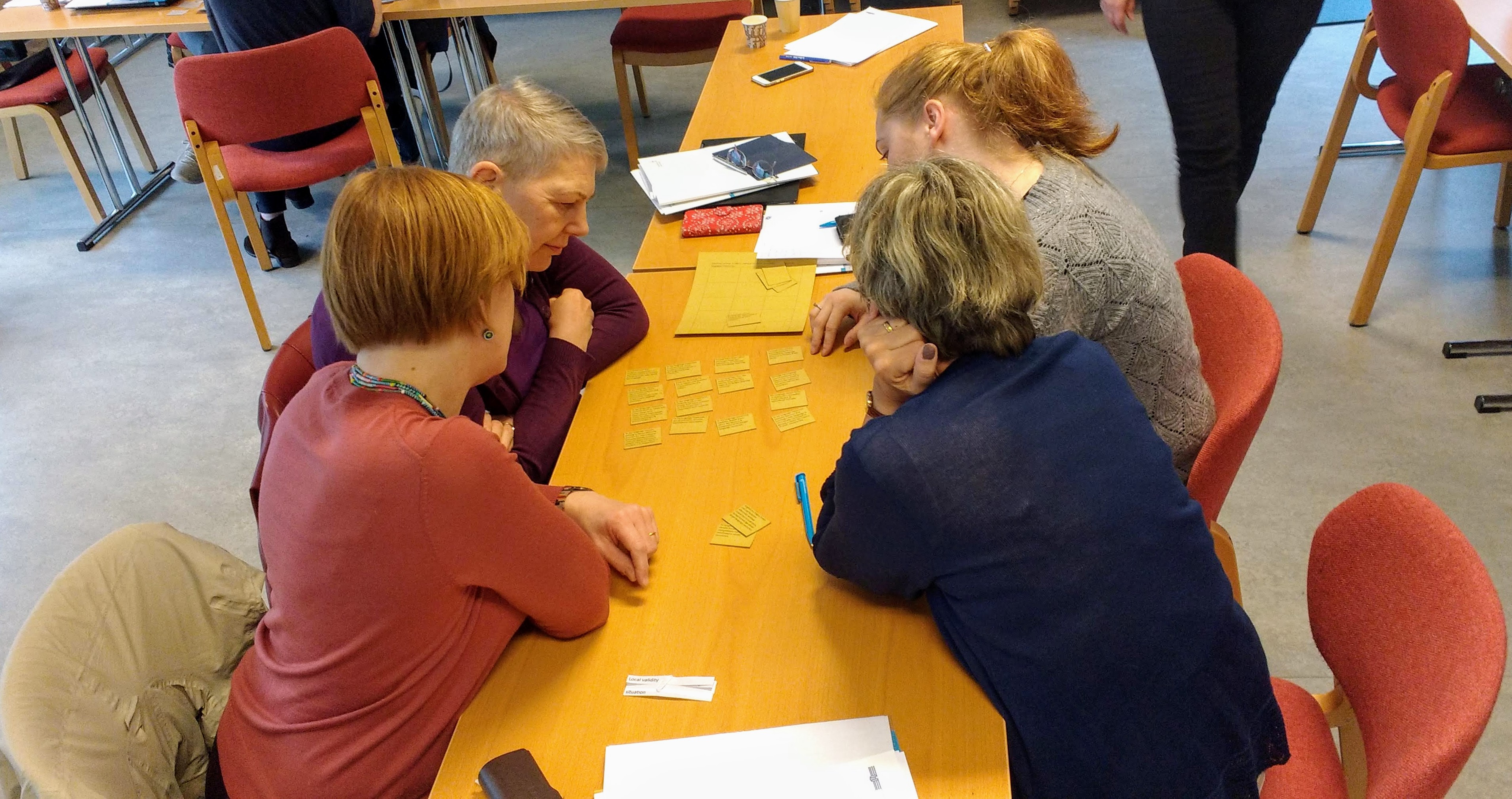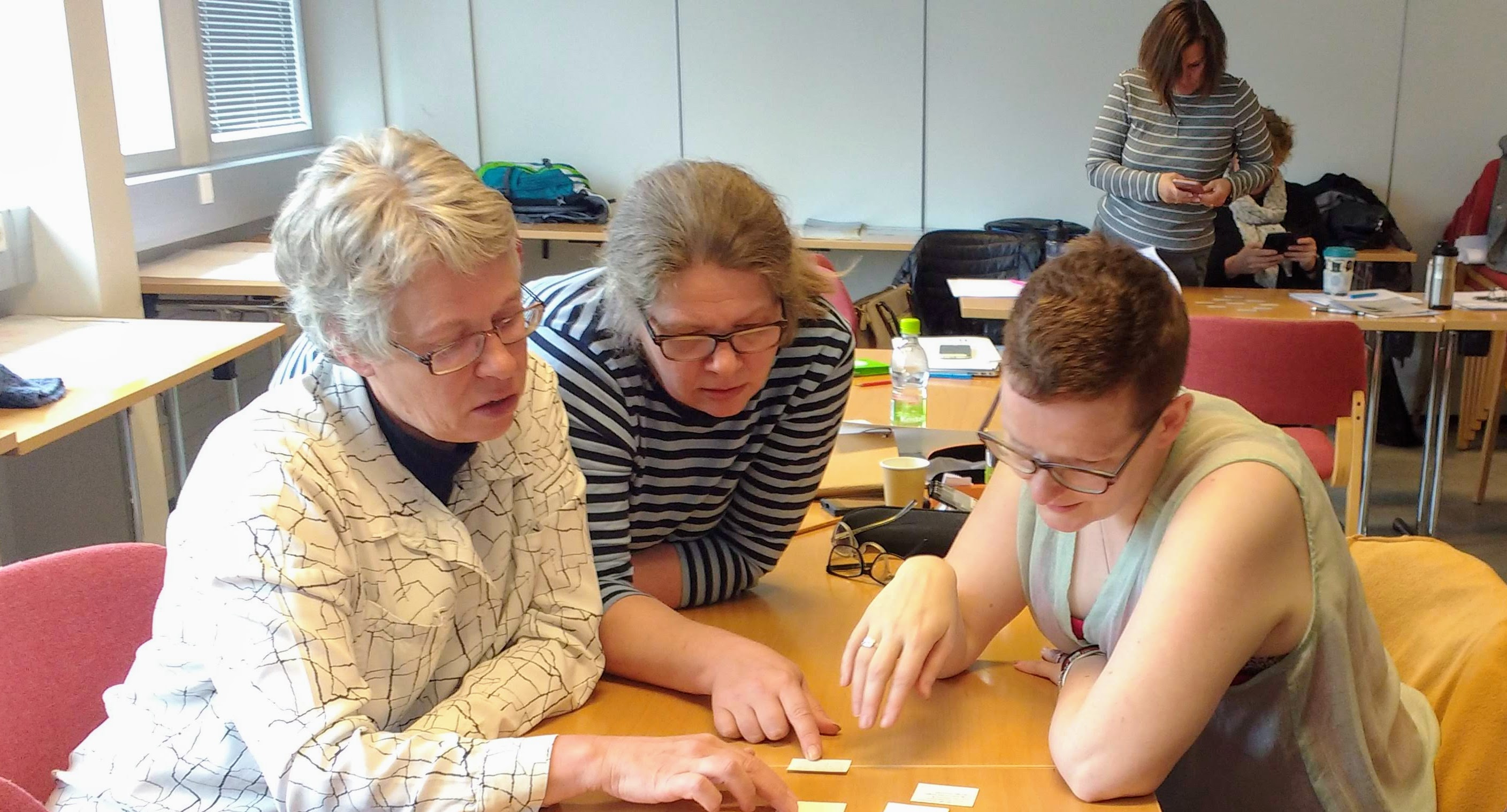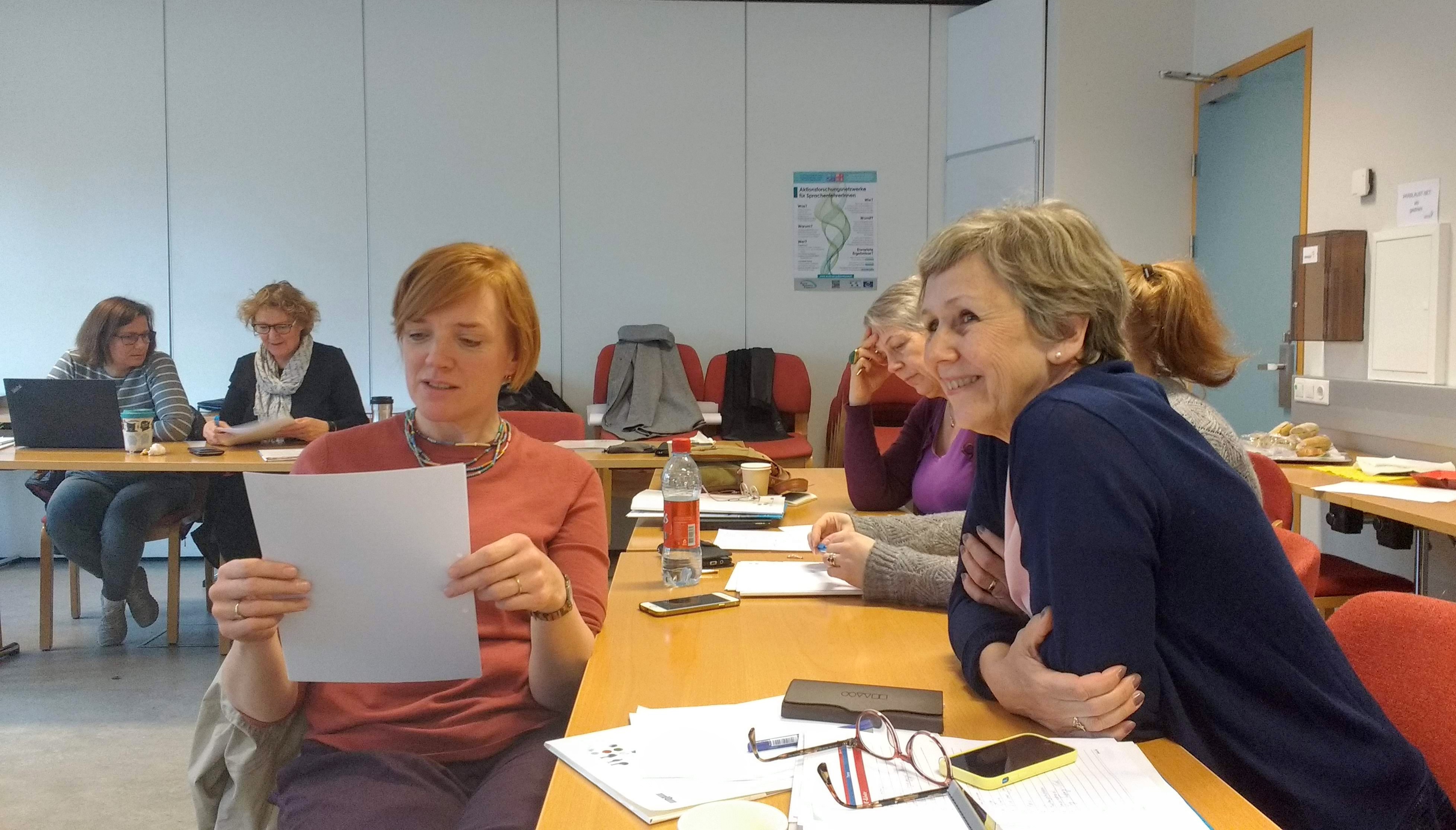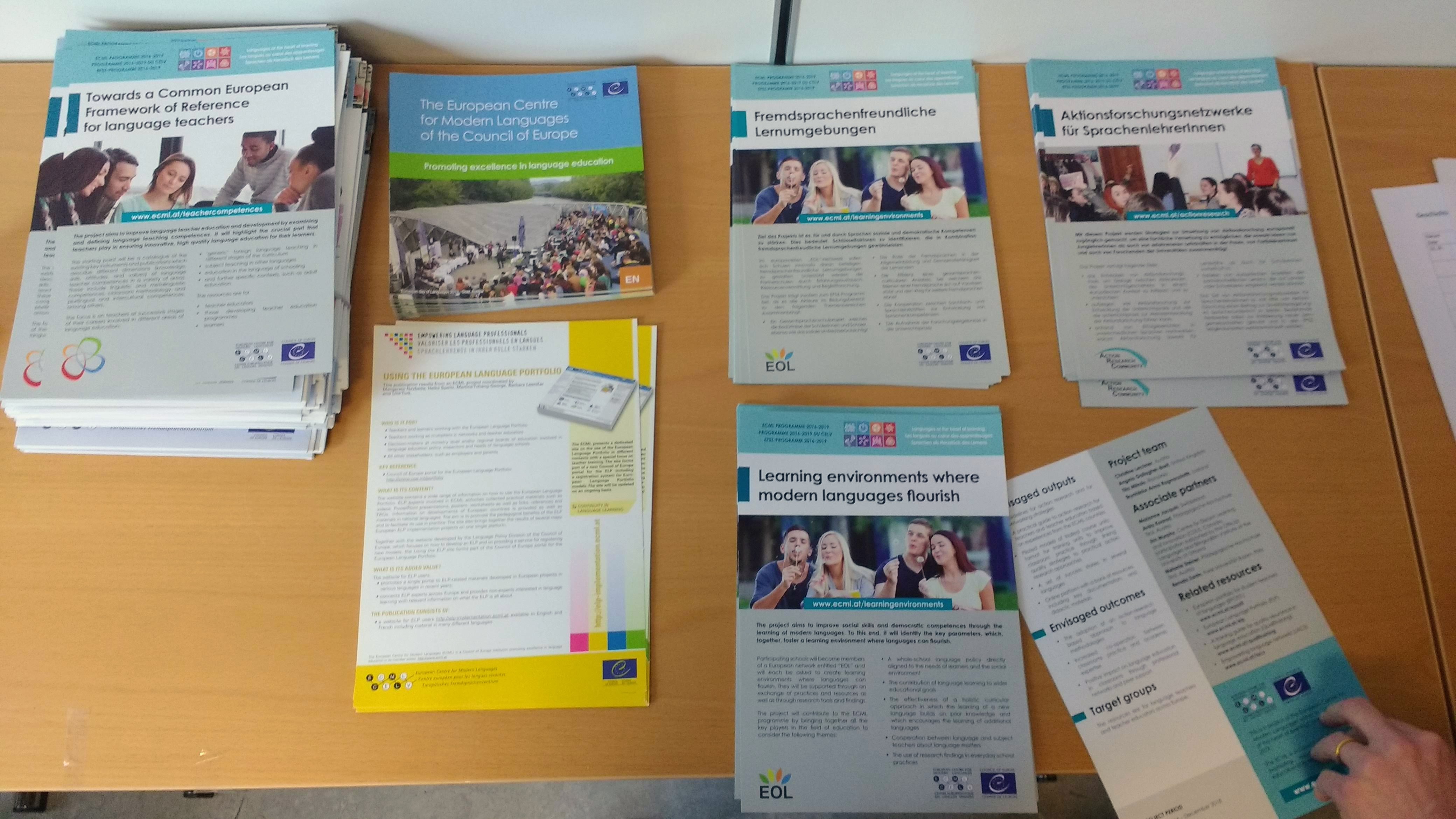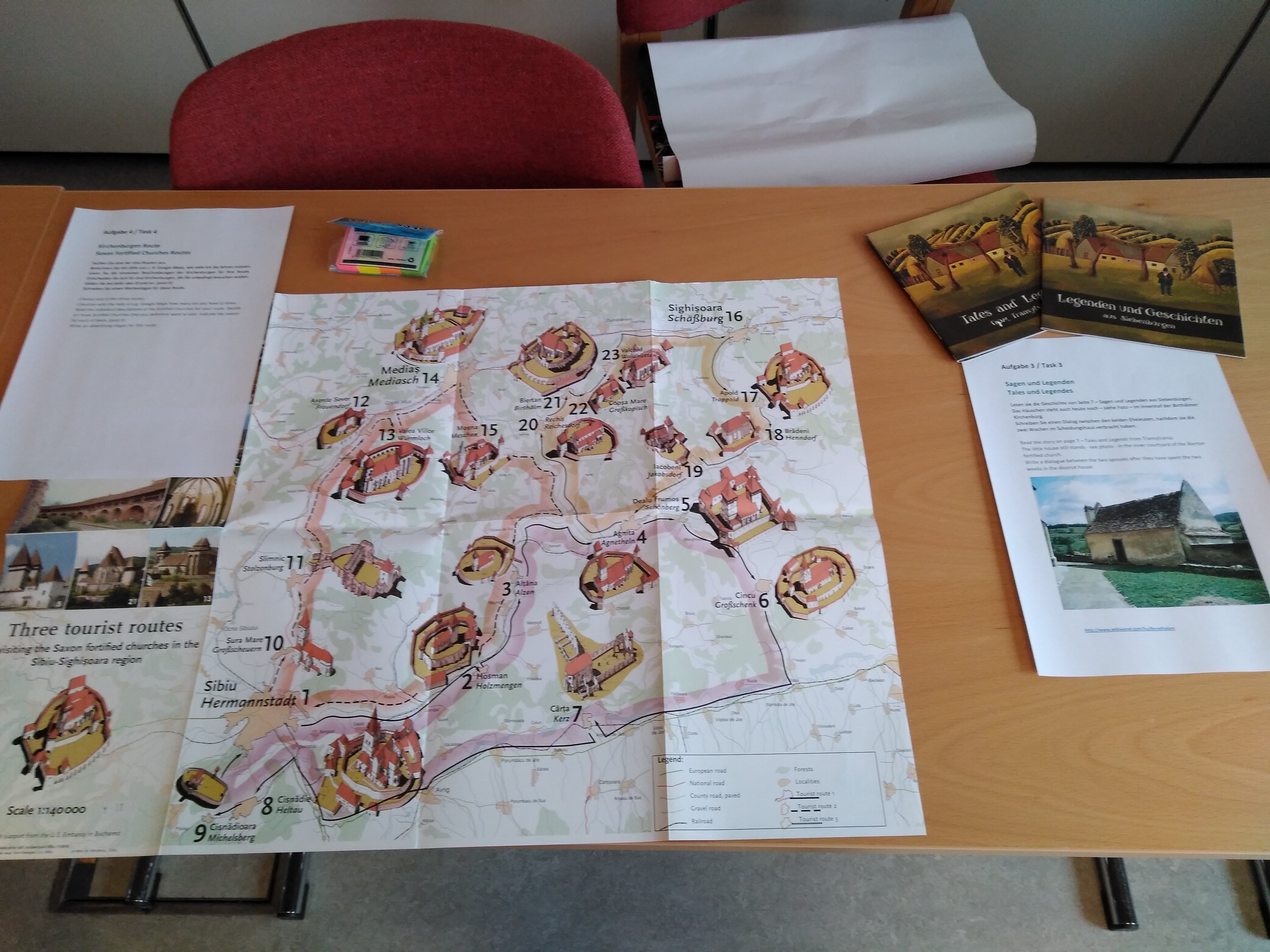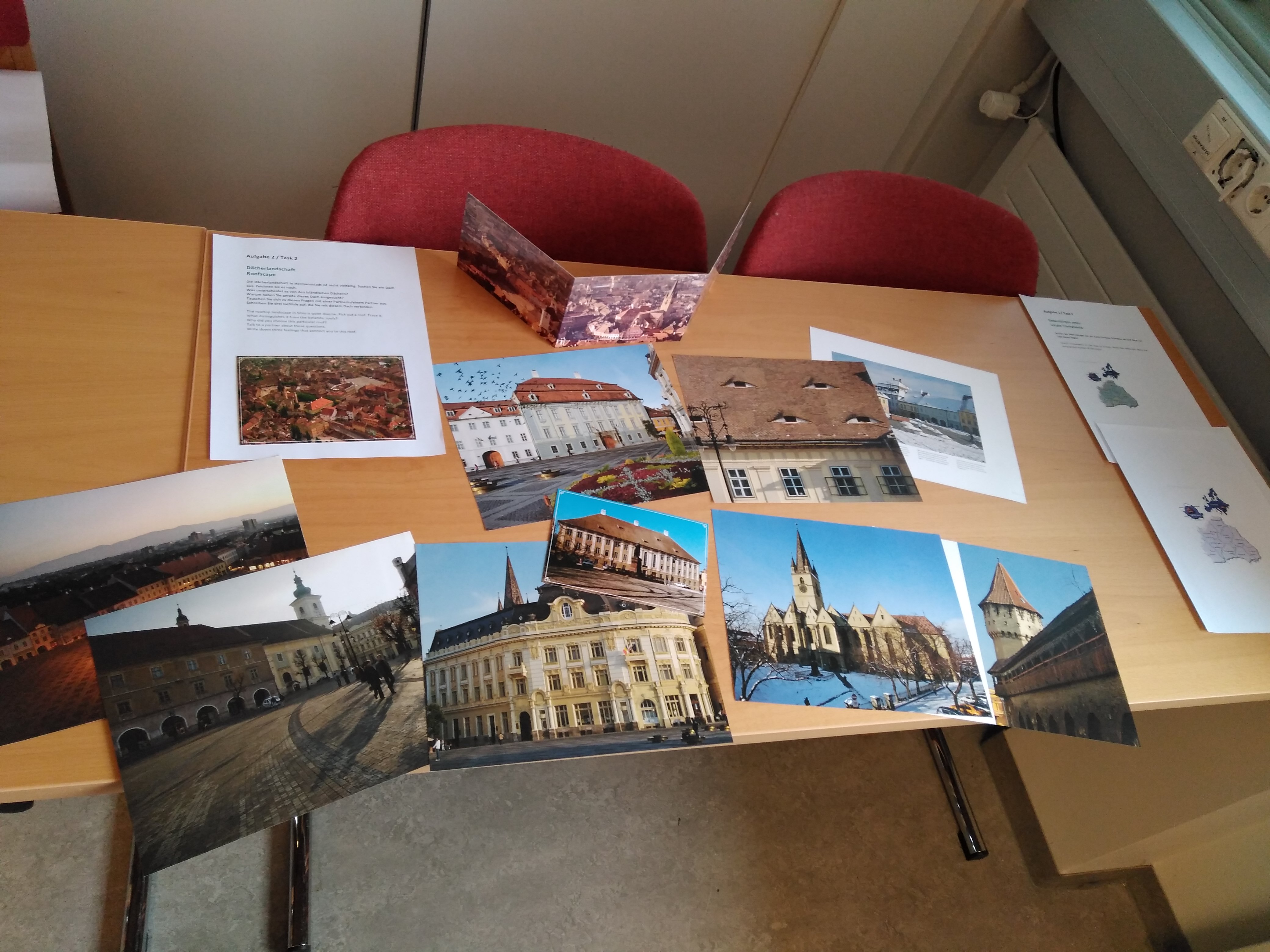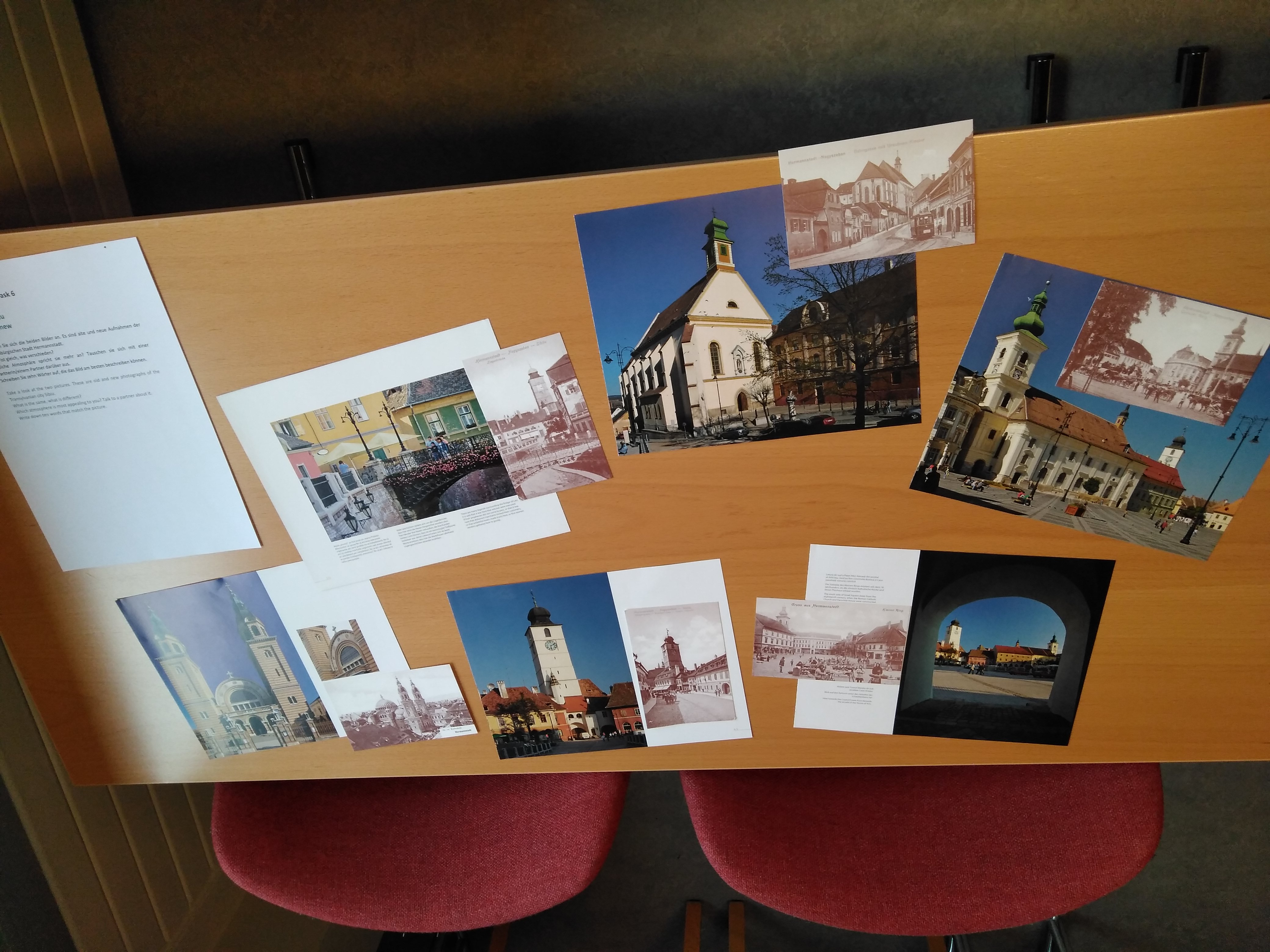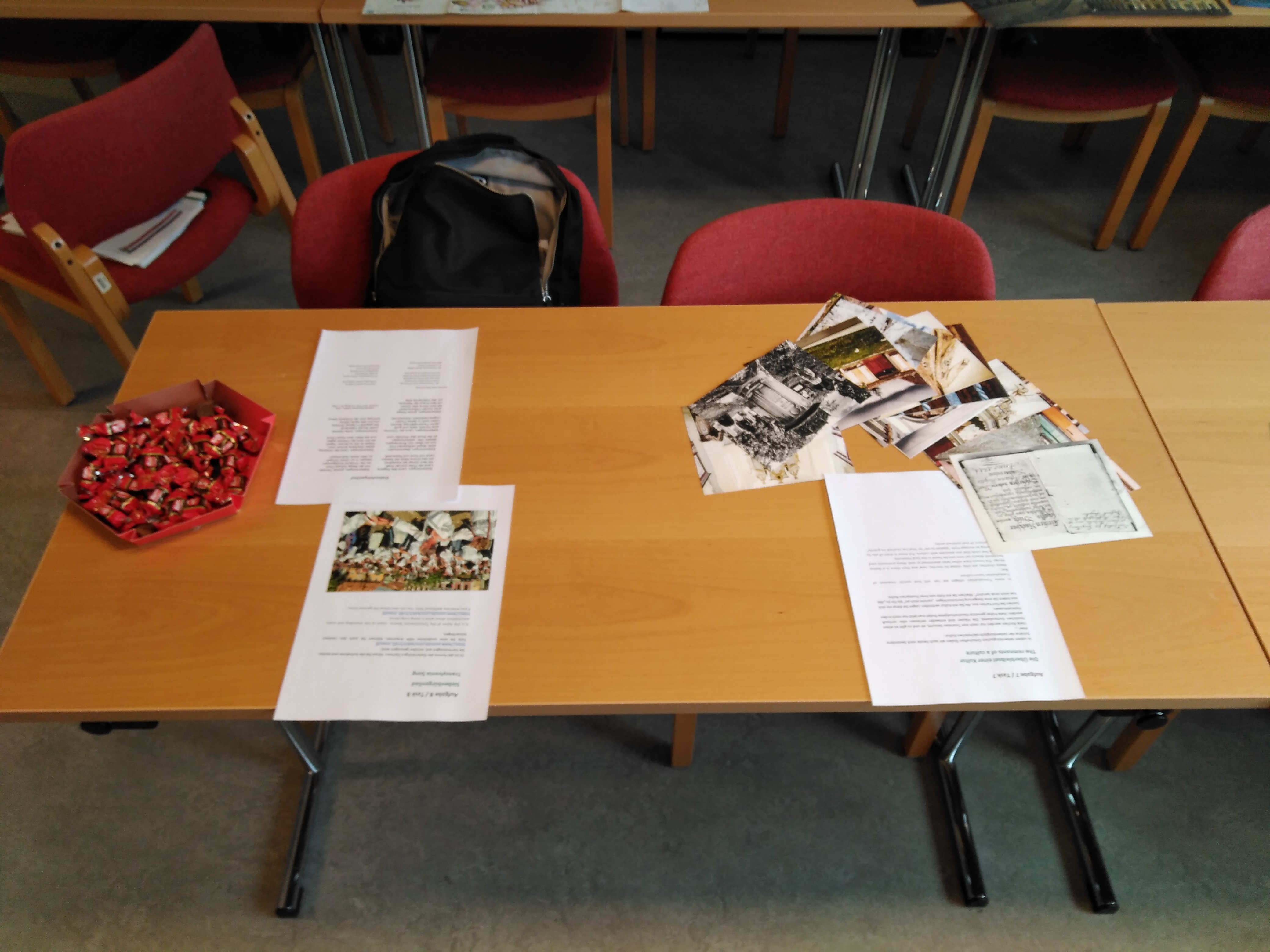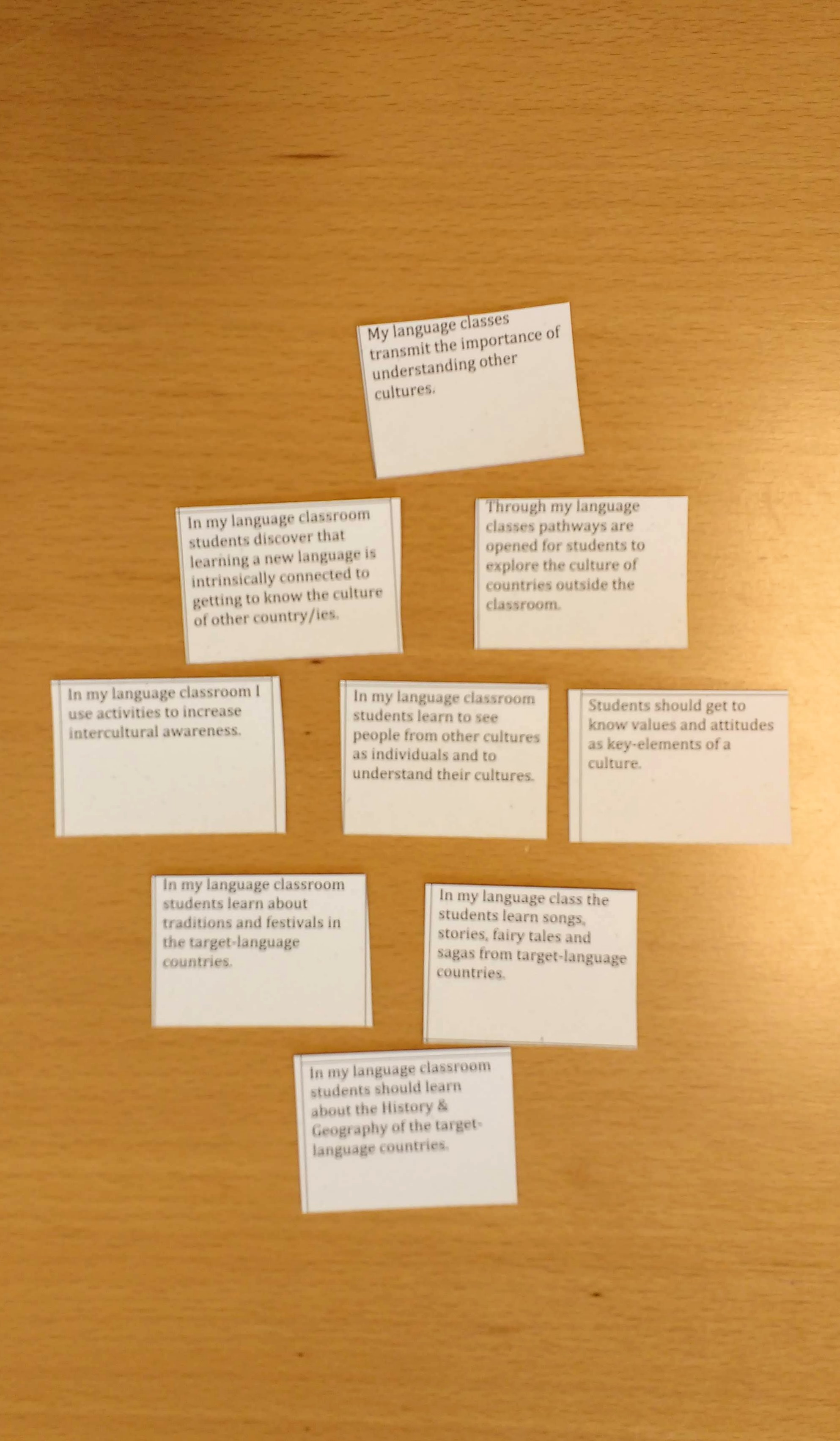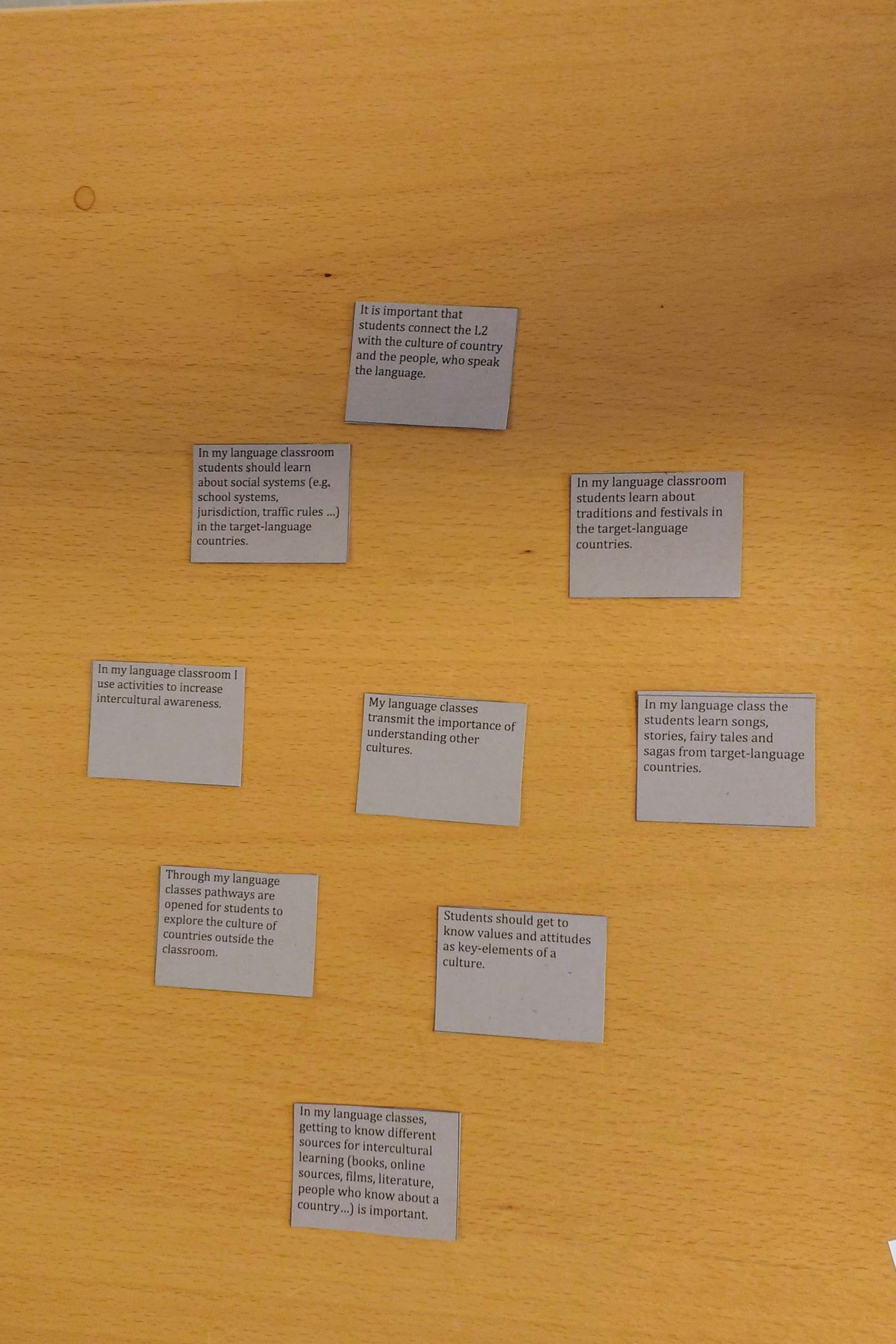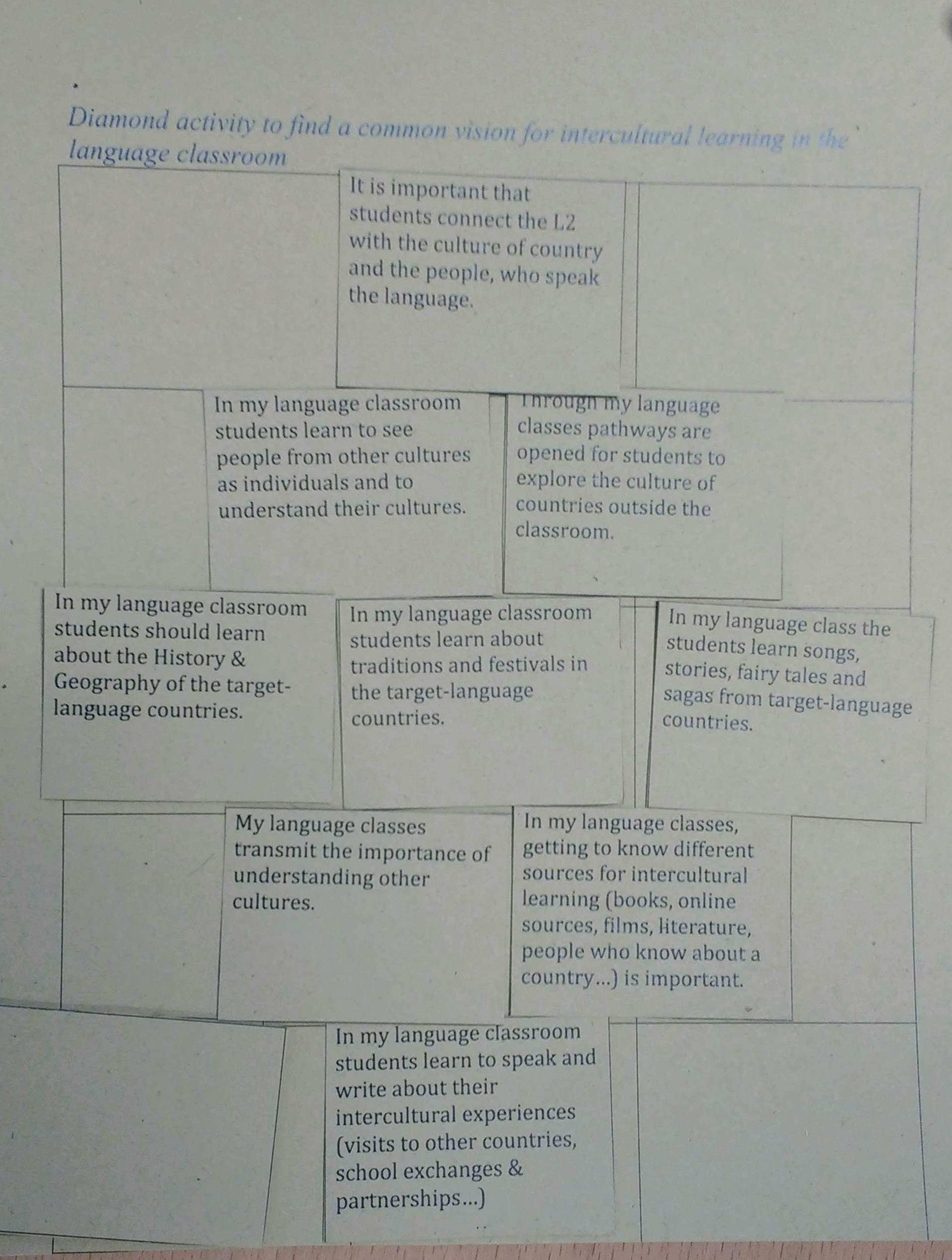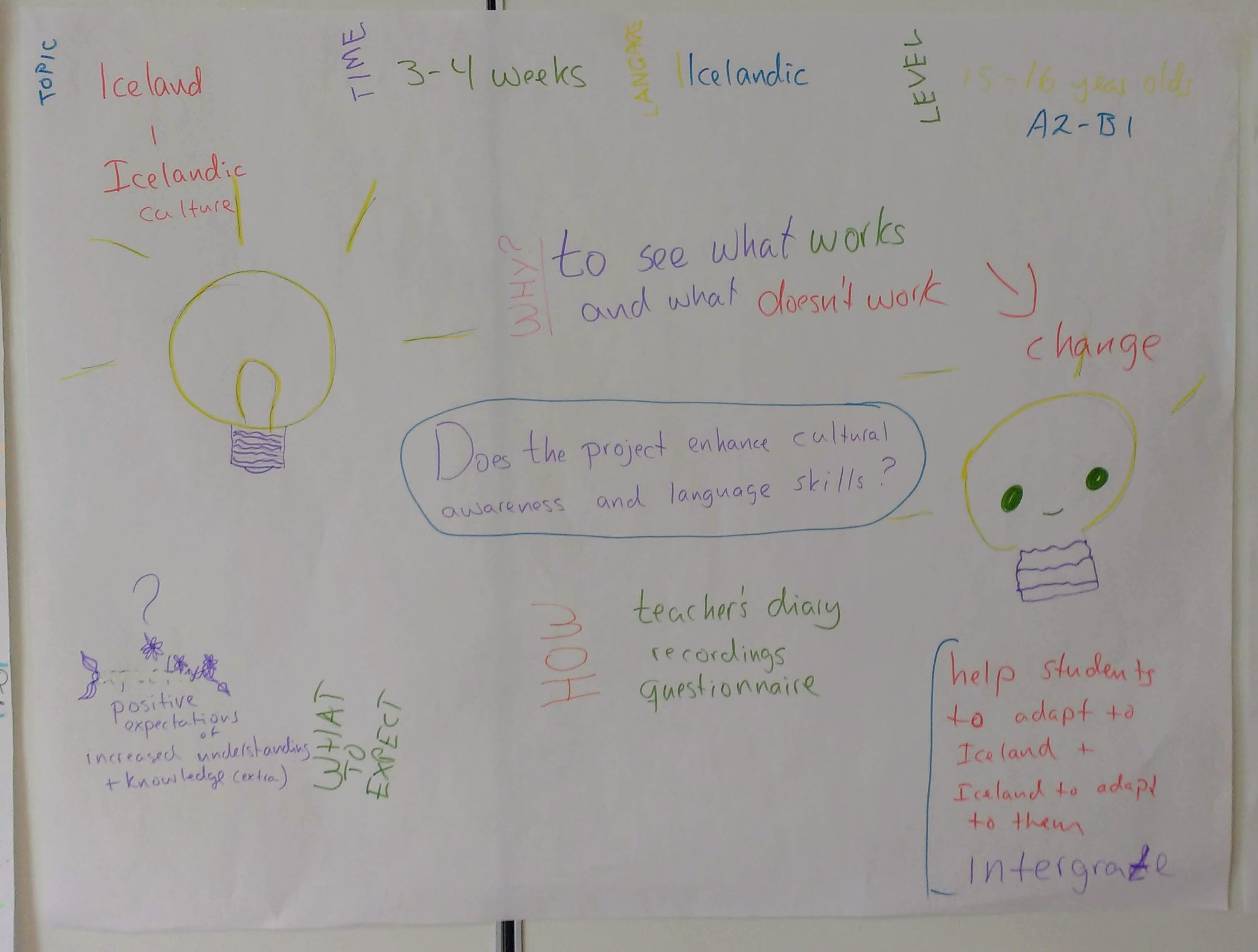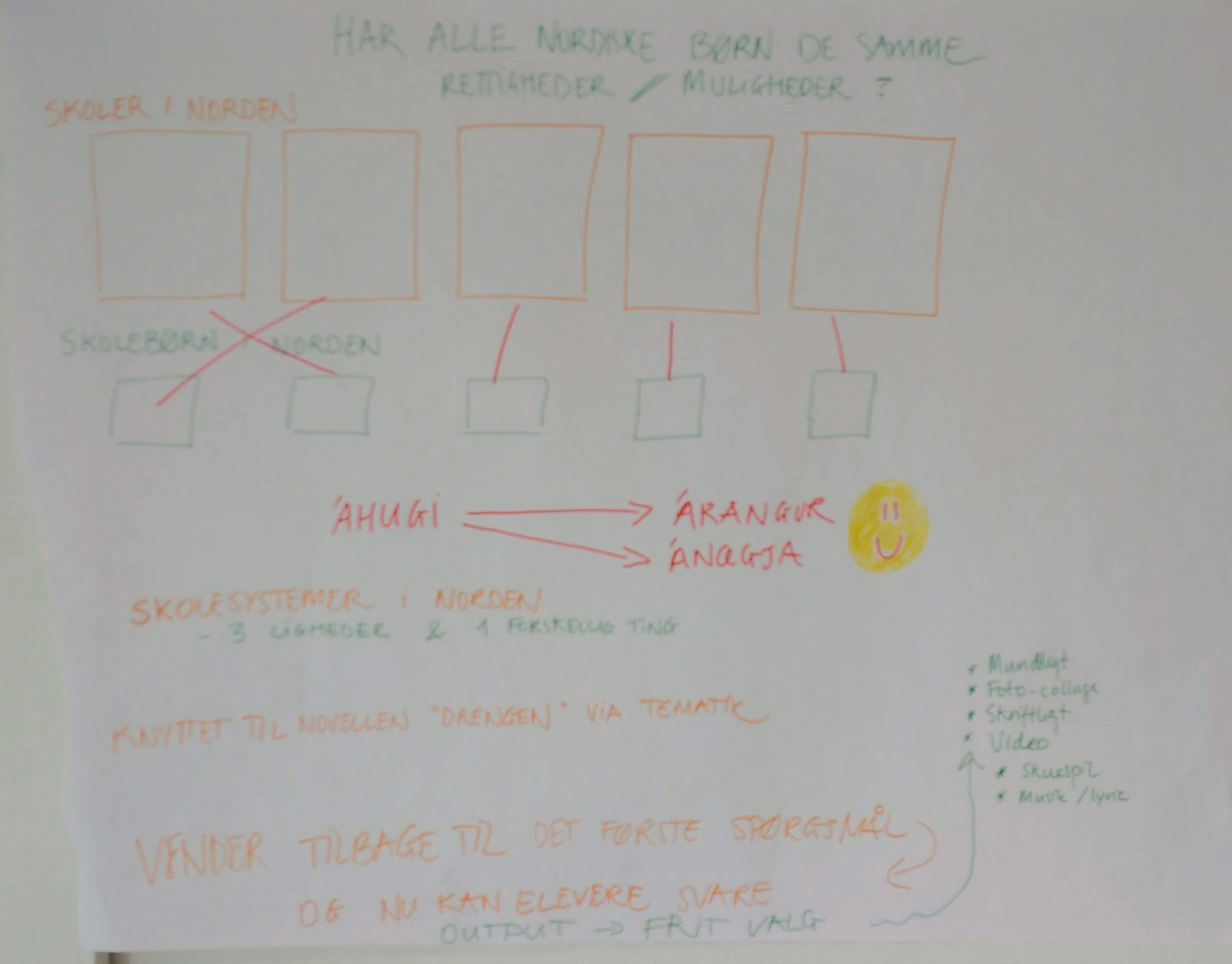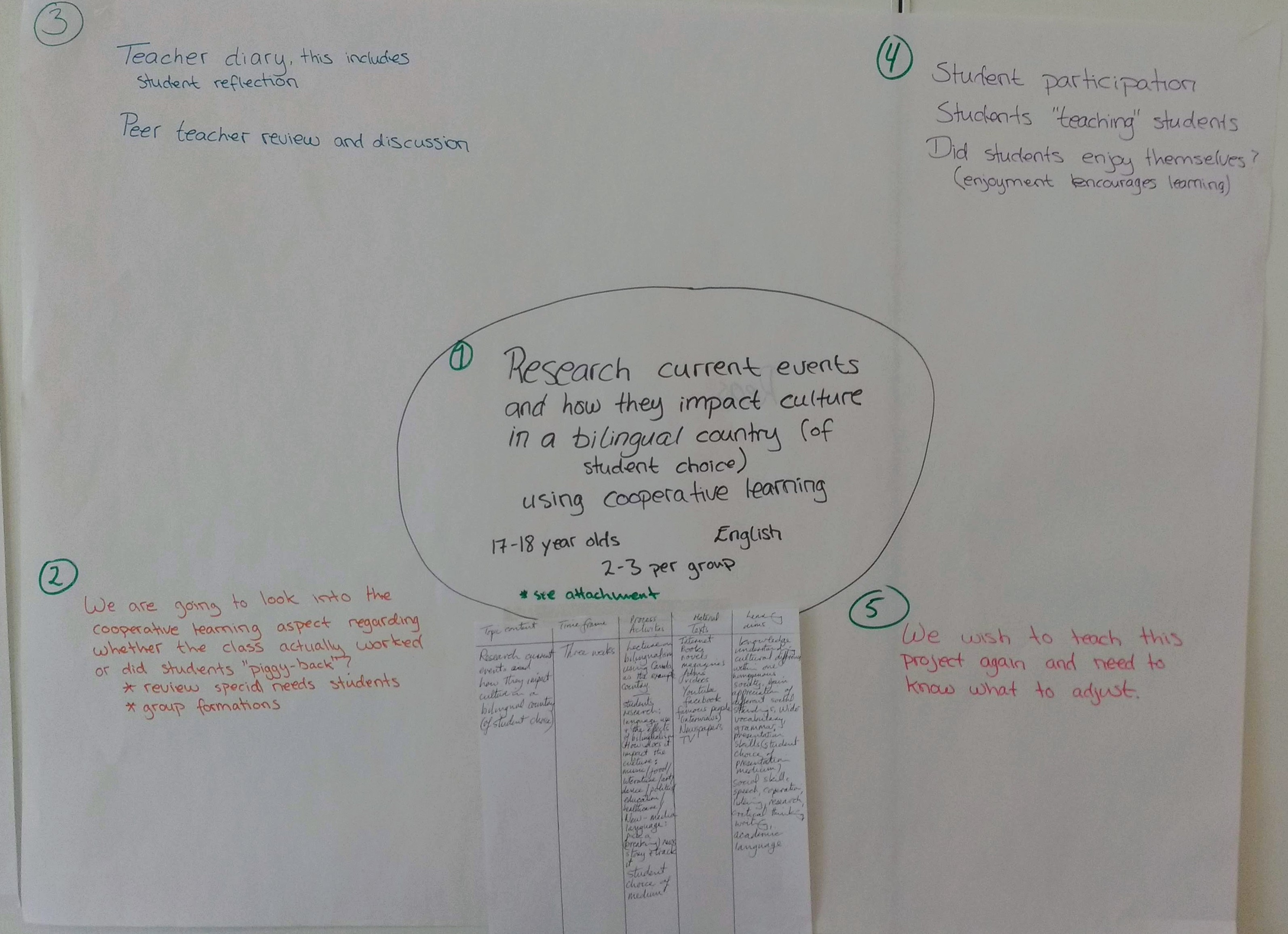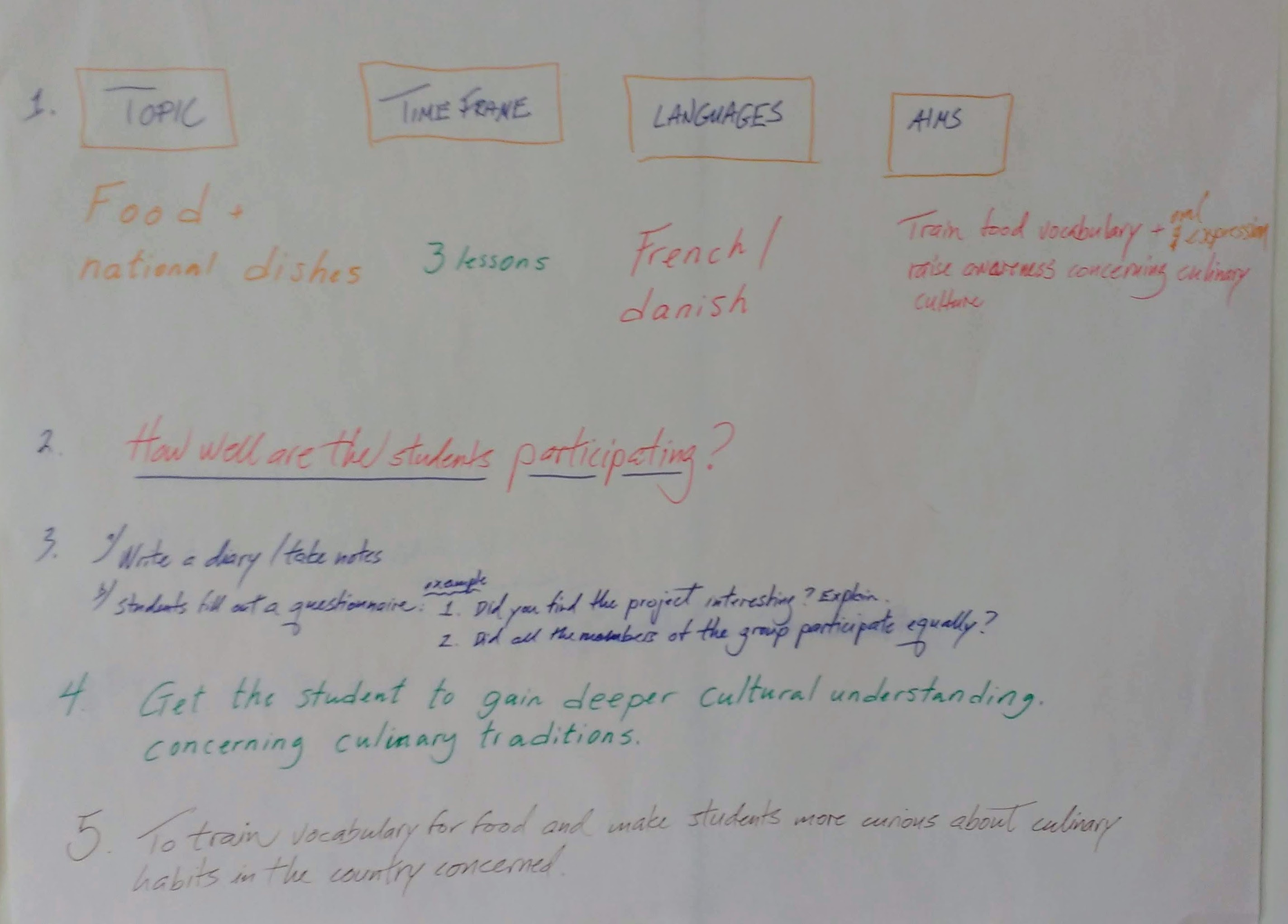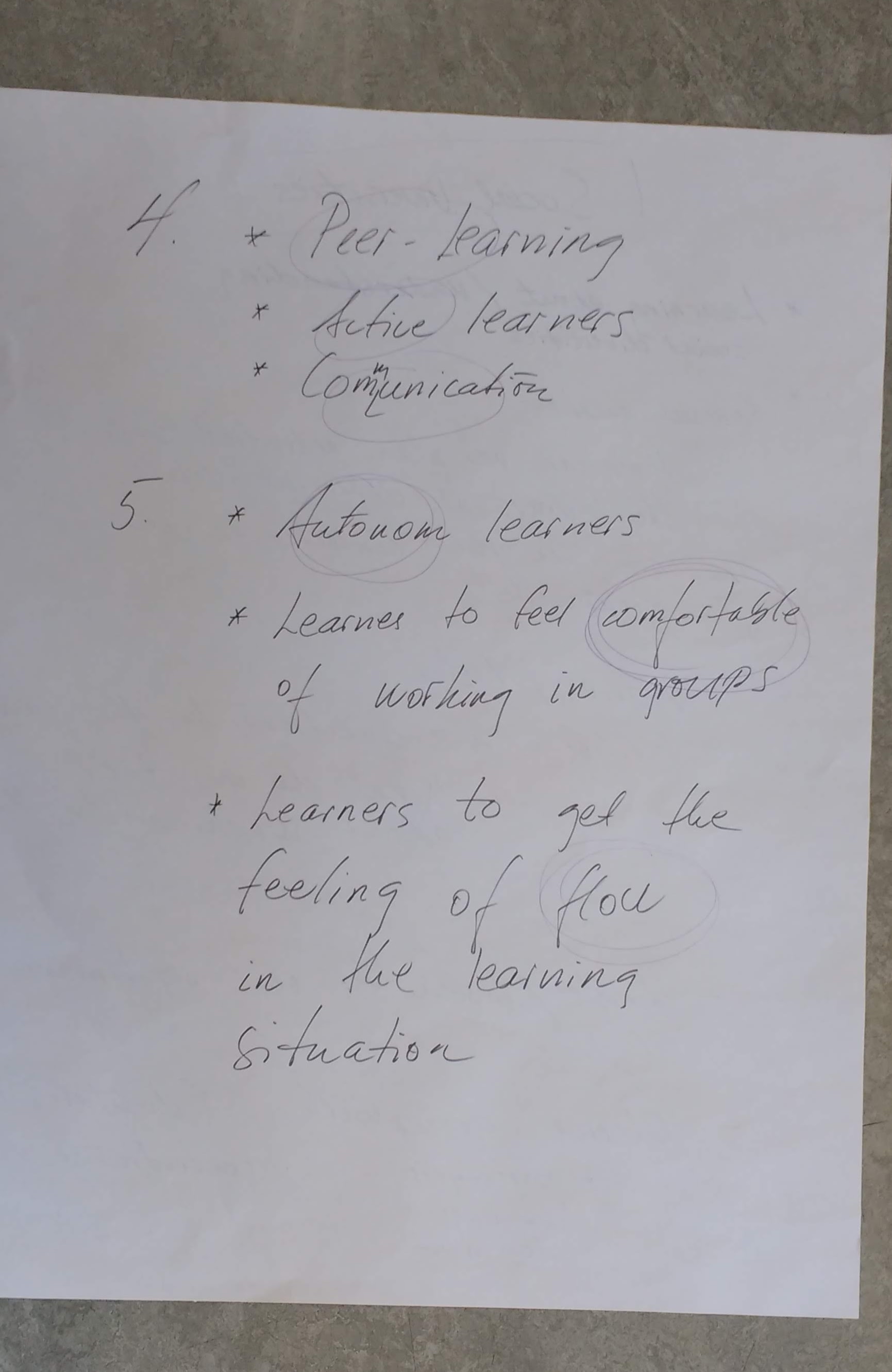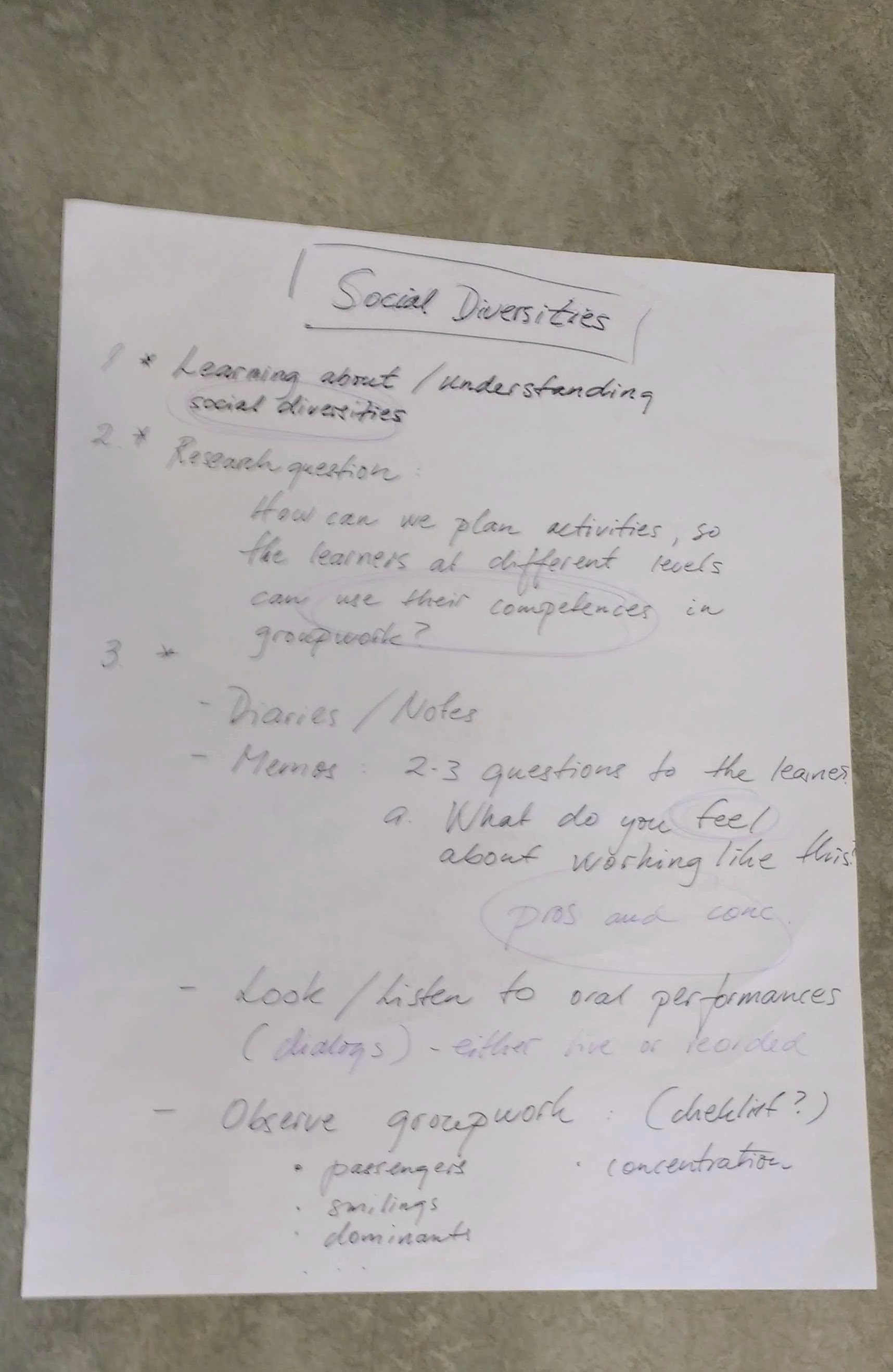News
01.07.2025
Beyond CLIL workshop: Inspiring change in multilingual classrooms
In early June, the University of Iceland hosted a dynamic ECML Training and consultancy event on “Beyond CLIL – Pluriliteracies Teaching for Deeper Learning” bringing together educators, student teachers and teacher educators committed to deepening learning through integrated language and content teaching. Led by ECML experts, the workshop offered hands-on strategies for designing learning sequences that support the development of both subject knowledge and language competences, with a strong focus on learner agency, multimodal meaning-making and transferability.
The event provided participants with tools to rethink their practice and beliefs through the lens of the Pluriliteracies framework, fostering collaboration across disciplines and languages. Feedback from participants was enthusiastic, highlighting the relevance of the approach in multilingual classrooms and the value of sharing practice across contexts.
This initiative was part of the ECML’s Training and consultancy programme, which offers tailored support to member states on key educational themes. If you are looking to transform your teaching and professional culture, we can warmly encourage you to explore this opportunity. Learn more about how to host an event: https://www.ecml.at/TrainingConsultancy.
Author: Caterina Poggi, local organiser, University of Iceland
Icelandic version:
Beyond CLIL vinnustofa: Innblástur til breytinga í fjöltyngdum bekkjum
Í byrjun júní stóð Háskóli Íslands fyrir vinnustofu á vegum ECML um efnið „Beyond CLIL – Pluriliteracies Teaching for Deeper Learning“. Vinnustofuna sóttu kennarar, kennaranemar og leiðsagnarkennarar sem deila áhuga á að dýpka nám með samþættingu tungumáls og efnis. Vinnustofan var leidd af sérfræðingum ECML og bauð upp á hagnýtar leiðir til að skipuleggja kennslu sem styrkir bæði þekkingu á viðfangsefnum og málfærni, með áherslu á virkni nemenda, fjölbreytta merkingarsköpun og yfirfæranleika þekkingar.
Viðburðurinn gaf þátttakendum tækifæri til að endurskoða eigið starf og fagleg viðhorf í ljósi Pluriliteracies-rammans og hvatti til samstarfs þvert á greinar og tungumál. Ánægja þátttakenda kom skýrt fram í endurgjöf, þar sem fram kom hversu vel nálgunin nýtist í fjöltyngdu kennsluumhverfi og hversu dýrmætt það er að deila reynslu með öðrum.
Þessi vinnustofa var hluti af þjónustu ECML, sem býður aðildarríkjum upp á sérsniðinn stuðning á sviði tungumálanáms og kennslu. Ef þú vilt breyta kennsluháttum og fagmenningu í þínu kennsluumhveri hvet ég þig eindregið til að skoða þessa þjónustu nánar.
Nánari upplýsingar um hvernig hægt er að skipuleggja slíka viðburði með aðstoð ECML: https://www.ecml.at/TrainingConsultancy
28.11.2024
ECML workshop enhances work-related L2 teaching in Iceland
Local organiser: Vanessa Monika Isenmann, project manager at Mímir - símenntun
ECML experts: Matilde Grünhage-Monetti (Germany, Alexander Braddell (UK)
Participants: 22 Icelandic teachers as well as project managers at Mímir – símenntun
Thanks to the ECML, Mímir, a lifelong learning centre in Reykjavík (Iceland), had the opportunity to host a workshop on work-related L2-Icelandic teaching for teachers and project managers. Led by two ECML experts from the Language for Work network, the workshop provided new insights and ideas regarding the design and planning of more effective L2-courses at the workplace, as well as fresh perspectives and methods for the development of course curricula, lesson structures, and course materials.
The workshop featured inputs from Language for Work partners across Europe, showcasing innovative practices and principles from various contexts. The participants were able to relate these examples to their own settings, identifying opportunities to enhance local practices. This collaborative effort fostered a shared understanding between the participants on how to better support work-related language learning.
The event significantly impacted the participants, offering a clearer vision of effective language teaching for the labour market. This knowledge will enable us to better plan and organize Icelandic courses at workplaces and to promote improved collaboration between our teachers and project managers.
Overall, the workshop achieved both didactic-methodological and strategic goals, marking a transformative step in enhancing adult language education in Iceland.
Why a Language for Work TaC activity is relevant for Iceland
Over the past three decades, immigration has grown profoundly in Iceland. While in 1993 less than 2% of Iceland’s population had foreign nationality, in 2023 more than 17% were non-Icelandic citizens according to Statistics Iceland. At the same time, unemployment is very low in Iceland and the Icelandic labour market depends increasingly on skilled workers from abroad, for example in the health system, childcare, construction, and in the hospitality sector. As a result of this, the demand for Icelandic courses, not least with regard job-related language training, has grown immensely in recent years and with it the need for skilled teachers of Icelandic. However, courses and training opportunities for (future) teachers of Icelandic as a foreign language are rare in Iceland. Especially when it comes to specialized job-related Icelandic courses, training opportunities for teachers are few and far between. Therefore, our Icelandic teachers greatly benefit from well-structured and established teacher education regarding job-related language teaching.
Vanessa Monika Isenmann, project manager at Mímir - símenntun
Related links (available in English and French)
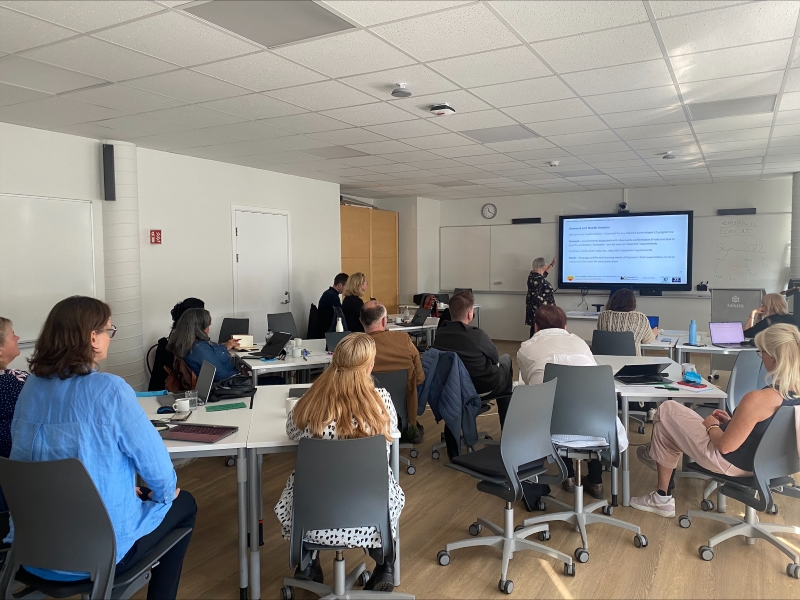
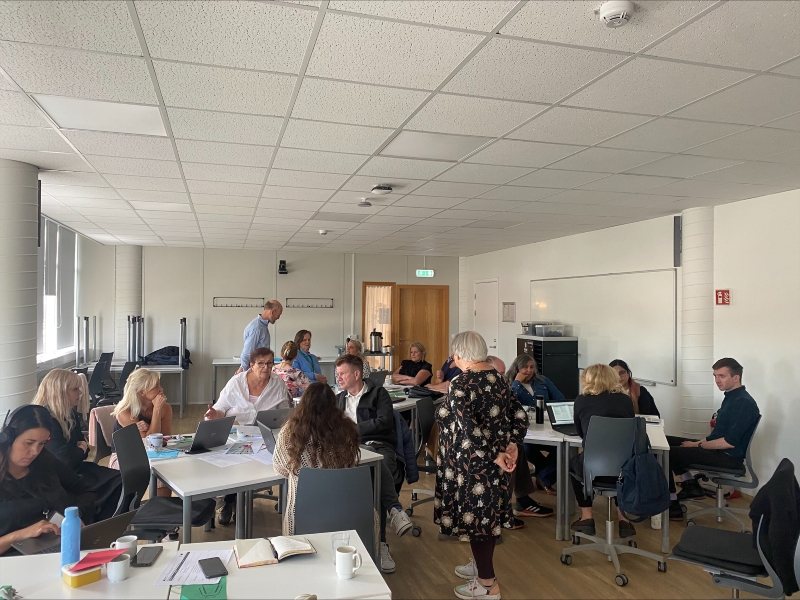
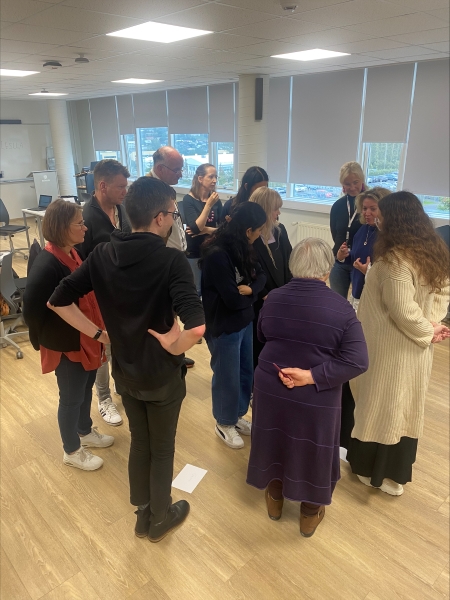
28.03.2023
European Language Gazette #63: enjoy the latest issue!
The European Language Gazette, the ECML's e-newsletter, provides up-to-date news about the ECML (events, projects, resources) and other relevant sectors of the Council of Europe as well as of our partners. It focuses on national developments in the field of language education in the member states and beyond.
Enjoy the latest issue: English – French
European Language Gazette no. 63 (January – March 2023)
Table of contents:
“A new Council of Europe Recommendation on language education: the importance of teacher education”
ECML programme developments 2020-2023 – “Inspiring innovation in language education: changing contexts, evolving competences”
- Save the dates!
- Launch event of the ECML Call for proposals for the 2024-27 programme, 15 May 2023
- ECML Summer Academy, Graz, 3-7 July 2023
- “Enhancing language education in cross-border vocational education education (initial/in-service)”: a critical topic all over Europe
ECML national support event
- “Diving into deep learning” – Vlaamse CLIL-studiedag (Brussels, Belgium, 6 March 2023)
Recent ECML resources
- Selected ECML flyers in German
- Selection of ECML resources and projects in German
- Publication translations
- Inventory of ICT tools and OERs: discover the latest resources!
Publications quoting the work of the ECML
- Related ECML work on language awareness, the language of schooling, subject classes, mediation, learning environments
European Day of Languages: EDL t-shirt contest
- EDL t-shirt 2023
- EDL t-shirt contest 2024
Training and consultancy activities
- Launch of a series of 48 language education workshops in member states
National developments
- Austria: competition for the European Language Label in Austria 2023
- France
- LISEO highlights the work and resources of the ECML and national language policies in Europe
- World Language Barometer 2022 – launch of the 4th edition
- Germany: MitSprache Deutsch4U - a programme for non-profit organisations to foster learning environments where diversity flourishes
- Ireland
- Erasmus+ School Education: The impact of mobility projects on the professional development of staff
- #ThinkLanguages Week 2023 (27 November – 1 December 2023)
- Canada: 2020-2021 Annual Report of the Official Languages and Bilingualism Institute (OLBI)
Professional Network Forum of the ECML
- Forthcoming events of the Forum members
- Eaquals webinar series 2023
- ECSPM: International Symposium “The social role of higher education: Developing the civil society’s awareness and impacting policies on the role of multilingualism in education” (Strasbourg, France, 22-24 March 2023)
- 10th EDiLiC conference (University of Copenhagen, Denmark, 28-30 June 2023)
- ICC – the International Language Association: conference, articles, new YouTube channel
- “Future of languages”: FIPLV Nordic-Baltic Region Conference (Reykjavik, Iceland, 8-9 June 2023)
In memoriam – Evangelia Moussouri and Tony Fitzpatrick
Council of Europe developments
- Towards the 26th session of the Council of Europe Standing Conference of Ministers of Education: a series of consultations
- CEFR online workshop series
- The European Charter for Regional or Minority Languages
- The European Charter for Regional or Minority Languages is celebrating its 25th anniversary
- Recent reports: Netherlands, Sweden
- Council of Europe online bookshop: recent publications
News from other organisations
- International Colloquium “Plurensa-2023: Multilingualism/plurilingualism, teaching and learning, complexity and integrity: epistemological, pedagogical and political perspectives” (7-10 June 2023, Montpellier, France)
- EU: European Year of Skills 2023, recent EU resources
- OECD: recent resources
- International Mother Language Day – UNESCO event “Multilingual education – a necessity to transform education” (21 February 2023)
- Global Citizenship and Multilingual Competences: new teaching module
- The European Wergeland Centre: recent resources
- New handbook “31 basic activities”
- “How does Artificial Intelligence influence the way teachers teach and students learn to live in a democracy?” – Webinar recorded on 7 February 2023
- Journal of International Mobility: special issue on Interculturality, intercultural skills and mobility in adult education – Call for paper until 28 April 2023
- Journal Education Sciences: special issue on Multiculturalism in higher education: current trends, challenges, and practices – Call for papers until 31 July 2023
- Babylonia, the Swiss Journal of Language Education: latest issue
Quick links
13.09.2022
Ígrundun og þróun kennsluhátta – Action research in language teaching
Local organisation: Brynhildur Anna Ragnarsdóttir
ECML experts: Angela Gallagher-Brett (United Kingdom) and Christine Lechner (Austria)
Participants: 10 teachers of English, German, Danish, Spanish, and Icelandic as FL in upper secondary schools; the president of STÍL
The face to face Training and Consultancy event was organised by STÍL – the Association of Language Teachers in Iceland and the Institute of Continuing Education within the University of Iceland on 11-12 August.
During the event the “Action Research Communities for languages” team presented concepts of action research and the ARC project as well as Intercultural Learning approaches in the language classroom.
The participants were highly engaged during the event and contributed in a very positive way throughout.
Five action research projects were planned during the workshop to be carried out during the autumn. Participants will focus on the following themes:
- Increasing confidence & competence in speaking LOTEs – German & Spanish;
- Reading full literary texts: strategies to motivate learners to read texts rather than synopses;
- Focus on spoken Danish in action;
- Reducing the use of L1 in the language classroom/ Increasing the use of the L2;
- Individual teaching in Mathematics and Icelandic – focus on content related language acquisition.
An online event to share development of the projects will take place at the beginning of November and it is hoped that these will subsequently be published on the ARC website.
Brynhildur Anna Ragnarsdóttir ([email protected])
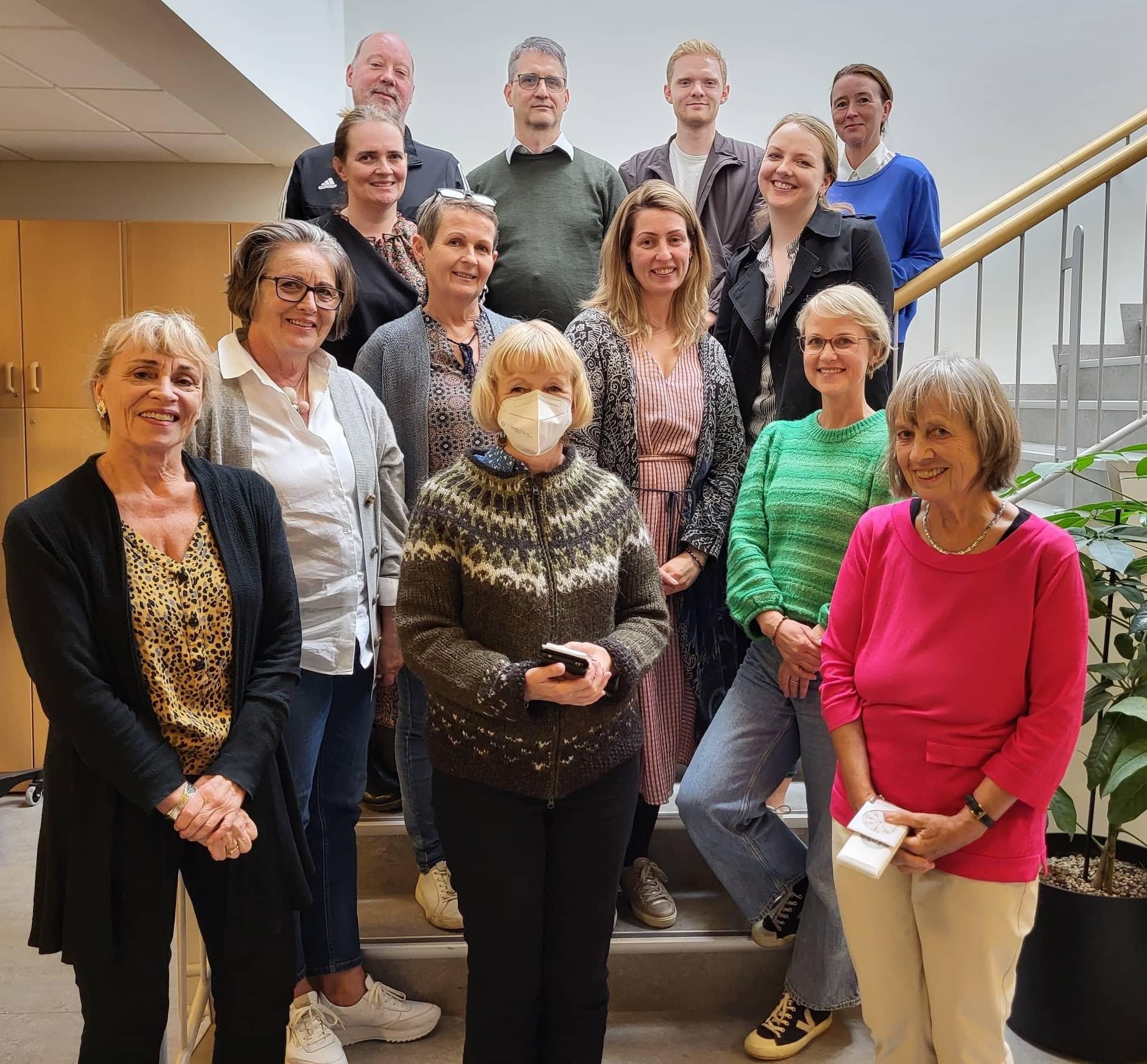
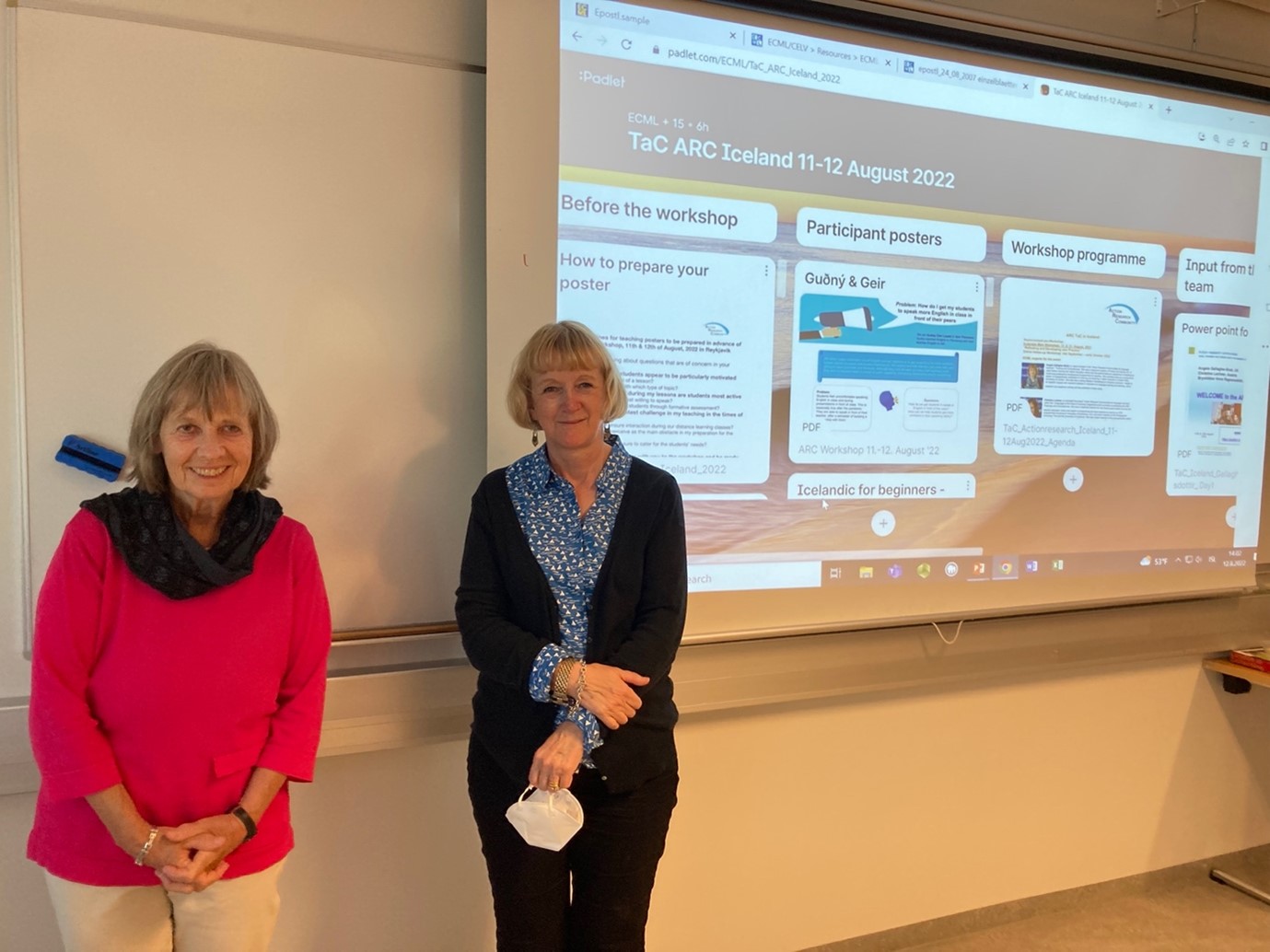

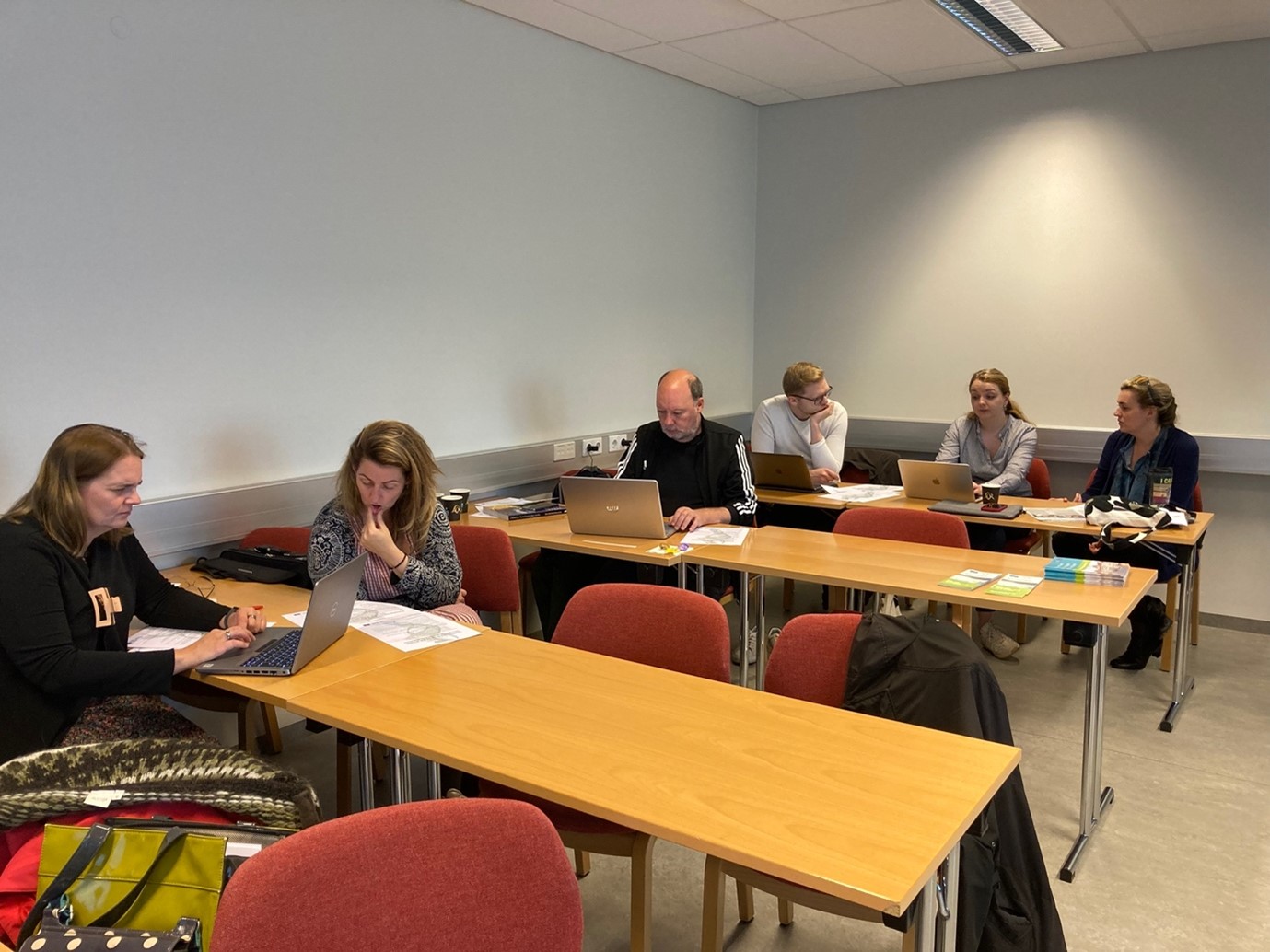
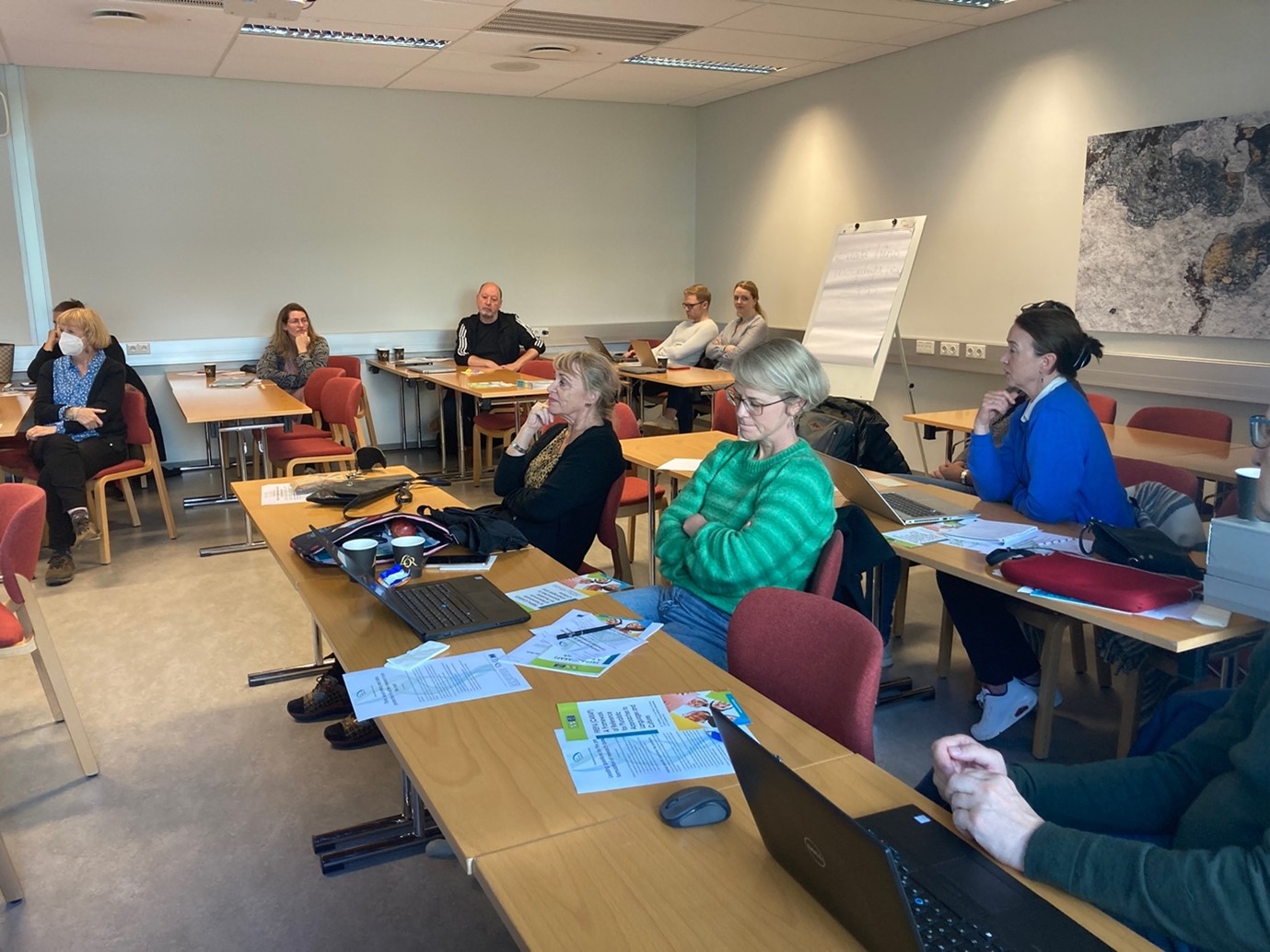
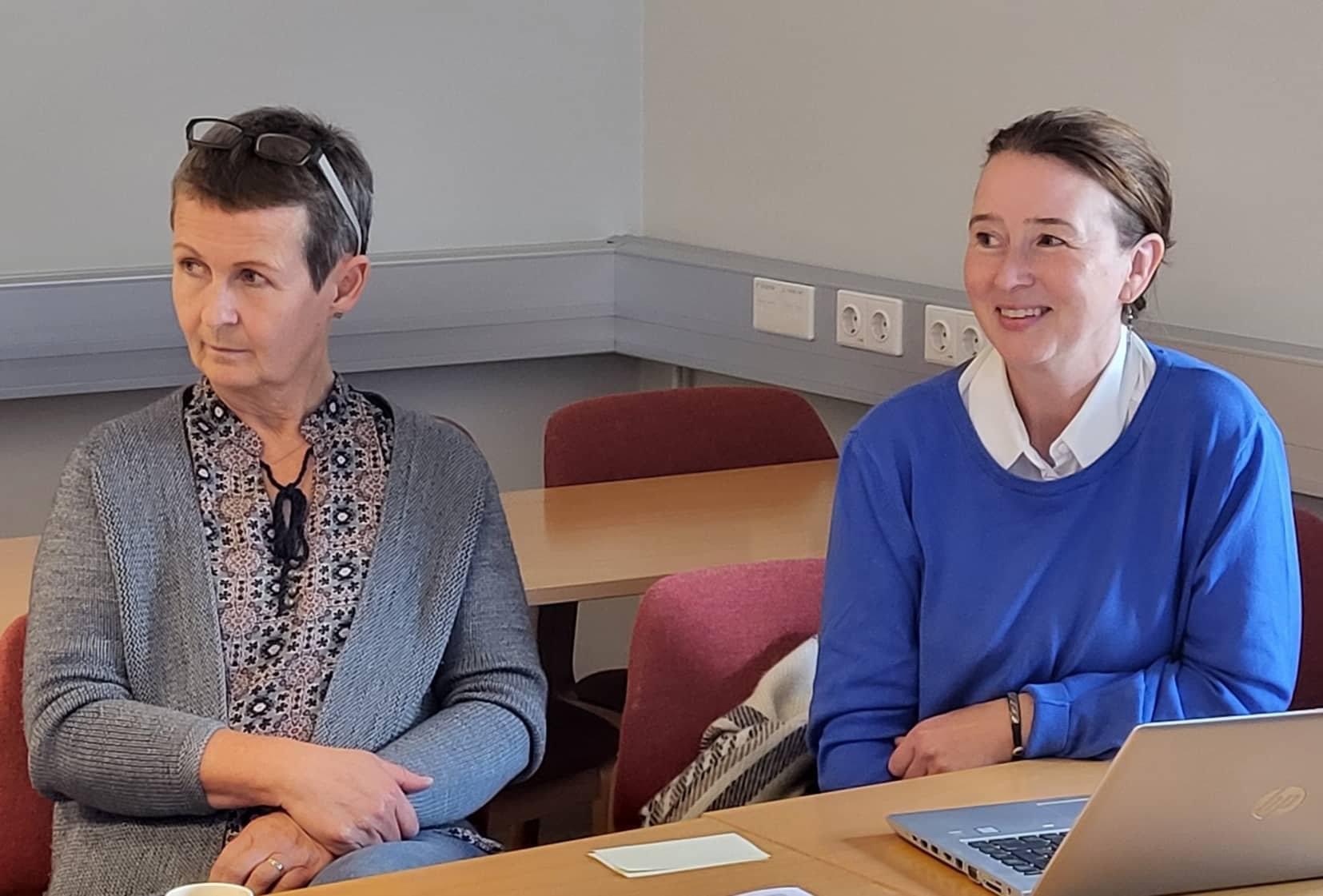
19.06.2018
Action research communities for language teachers (ARC): national support event in Iceland
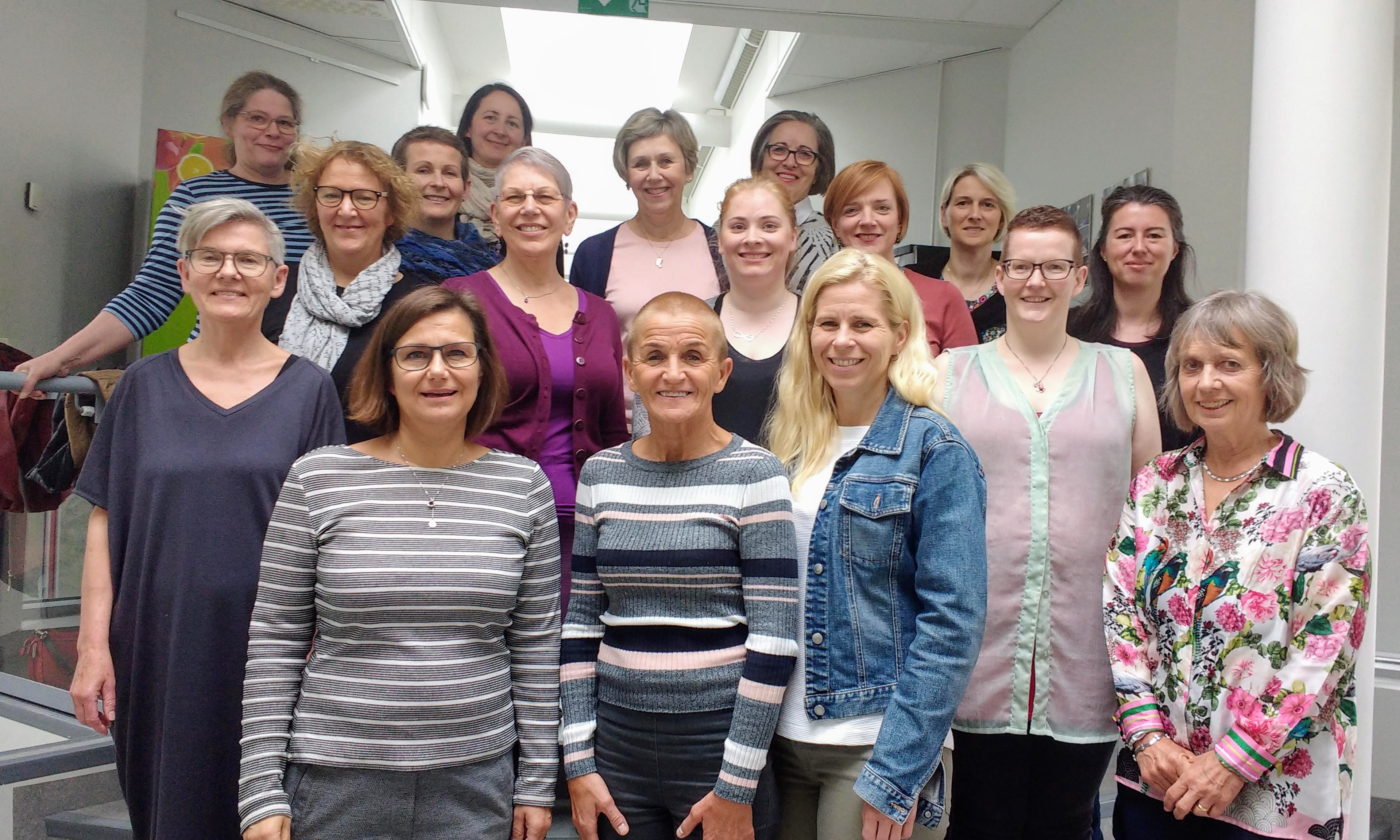 The ARC team held a workshop in Reykjavík for Upper Secondary teachers of Danish, English, French, German, Norwegian and Icelandic as an L2 on 7-8 June 2018.
The ARC team held a workshop in Reykjavík for Upper Secondary teachers of Danish, English, French, German, Norwegian and Icelandic as an L2 on 7-8 June 2018.
The workshop was organised by the Icelandic partner, Brynhildur Anna Ragnarsdottír, and the providers were Anita Konrad, Christine Lechner and Melanie Steiner from the Pedagogical University Tirol, Austria, and Tita Mihiau from the Centrul pentru formarea Continua in Limba Germana in Sibiu/Hermannstadt, Romania. The workshop was furthermore supported by local speakers, Dr. Hafdís Ingvarsdóttir and Hulda Karen Daníelsdóttír.
The aim was to deliver a worthwhile workshop on action research leading teachers to first action research steps whilst focussing on lesson planning on a specific theme. The theme chosen in accordance with dynamic CEFR developments was intercultural learning. Thus, besides an introduction to action research and information about the ARC project, there was an open session showing exemplary didactic materials on intercultural themes embedded in language learning.
During the final part of the workshop, participants worked on planning teaching units focussing on intercultural learning working in groups whereby some grouped according to the languages they teach and others collaborated across languages. As a second step, participants planned a mini-action research project corresponding to the first stage of the ARC spiral.
- Project website "Action research communities for language teachers" (2016-2019):
English - German
The project team:
Christine Lechner (project coordinator, Austria),
Angela Gallagher-Brett (United Kingdom),
Tita Mihaiu (Romania), Brynhildur Anna Ragnarsdóttir (Iceland)
